Pomegranate
How to submit an article:
- Registered users can submit any published journal article that has a unique DOI (Digital Object Identifier) name or link to Research Hub.
- For example, you can paste the full DOI link:
https://doi.org/10.1109/5.771073or just the DOI name:10.1109/5.771073into the field above and click submit. - The person who is first to submit a valid article to Research Hub will forever be credited for it, and every article submission earns you +6 Research Points.
Sub-Topics:
Related Topics
Published research studies are articles that present the findings of original research that has undergone a peer-review process and has been made publicly available in scholarly journals, books or other media.
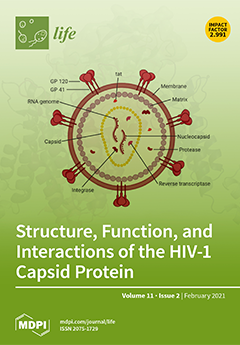
Therapeutic Potential of Pomegranate Extract for Women’s Reproductive Health and Breast Cancer
2024 Oct 03 Life Jang JY, Kim D, Im E, Kim ND
Review Article PCOS Breast Cancer PomegranatePomegranate extract could potentially benefit women's reproductive health, enhance fertility, regulate menstrual cycles, support pregnancy, and help treat polycystic ovary syndrome.
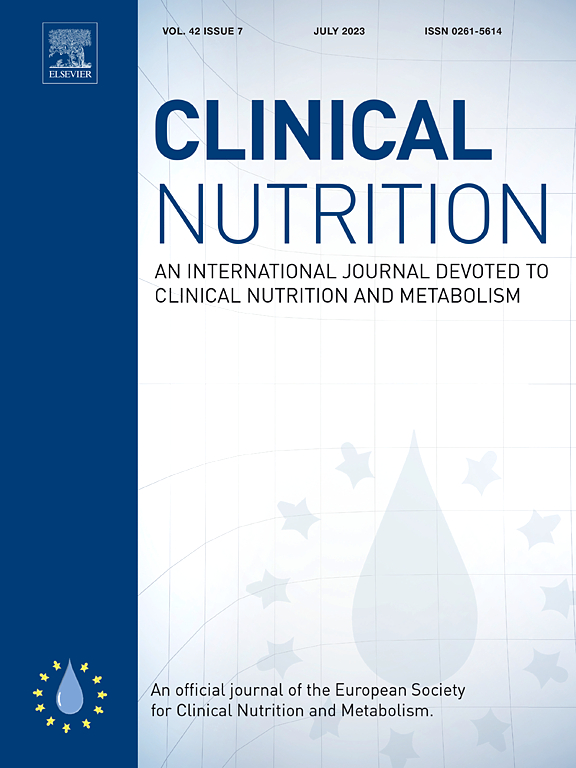
Effects of pomegranate juice consumption on sperm quality, spermatogenic cell density, antioxidant activity and testosterone level in male rats
2024 Apr Clinical Nutrition Türk G, Sönmez M, Aydin M, Yüce A, Gür S, Yüksel M, et al.
PJ consumption resulted in a significant decrease in malondialdehyde (MDA) level and significant increases in glutathione (GSH), glutathione peroxidase (GSH-Px), catalase (CAT) activities, and vitamin C levels. Additionally, PJ improved epididymal sperm concentration, sperm motility, spermatogenic cell density, seminiferous tubule diameter, germinal cell layer thickness, and decreased abnormal sperm rates in comparison to the control group, suggesting that PJ consumption enhances sperm quality and antioxidant activity in rats.
Experimental Study Animal Study Antioxidant Sperm Quality Pomegranate
Pomegranate (Punica granatum L.) and its phytochemicals as anxiolytic; an underreported effect with therapeutic potential: A systematic review
2023 Dec Brain Research Flores-Bazán T, Betanzos-Cabrera G, Guerrero-Solano JA, Negrete-Díaz JV, German-Ponciano LJ, Olivo-Ramírez D
Systematic Review Anxiety PomegranatePomegranate fruit and its phytochemicals may offer a novel, natural alternative for the treatment of pathological anxiety, with fewer adverse effects than traditional medications.

Pomegranate effects on the health aspects of women during peri‐ and postmenopause: A systematic review and meta‐analysis
2023 Nov 06 Phytotherapy Research Moeini R, Shirafkan H, Gorji N
Systematic Review Women's Health Menopause Pomegranate Hot FlushesPomegranate can significantly enhance women's health during and after menopause by reducing hot flashes severity and other menopause symptoms.
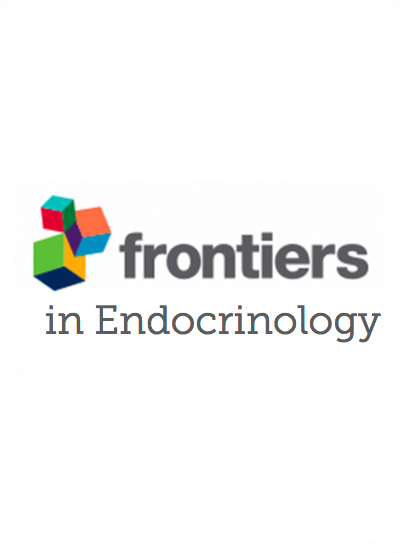
Modulatory effect of pomegranate peel extract on key regulators of ovarian cellular processes in vitro
2023 Nov 08 Frontiers in Endocrinology Kolesarova A, Baldovska S, Kohut L, Vasicek J, Ivanisova E, Arvay J, et al.
The study found that pomegranate peel extract had inhibitory effects on the metabolic activity of OVCAR-3 cells, increased CDKN1A levels, and influenced steroidogenesis in HGL5 cells, suggesting its potential as a (chemo)preventive agent for ovarian cancer.
Experimental Study Ovarian Cancer Pomegranate PeelResearch insights are moderated by the Research Hub team and offer an at-a-glance overview of interesting research findings.

2024 Life
Pomegranate extract could potentially benefit women's reproductive health, enhance fertility, regulate menstrual cycles, support pregnancy, and help treat polycystic ovary syndrome.
Review Article Breast Cancer PCOS
Therapeutic Potential of Pomegranate Extract for Women’s Reproductive Health and Breast Cancer
Jang JY, Kim D, Im E, Kim ND

2023 Brain Research
Pomegranate fruit and its phytochemicals may offer a novel, natural alternative for the treatment of pathological anxiety, with fewer adverse effects than traditional medications.
Systematic Review Anxiety
Pomegranate (Punica granatum L.) and its phytochemicals as anxiolytic; an underreported effect with therapeutic potential: A systematic review
Flores-Bazán T, Betanzos-Cabrera G, Guerrero-Solano JA, Negrete-Díaz JV, German-Ponciano LJ, Olivo-Ramírez D

2023 Phytotherapy Research
Pomegranate can significantly enhance women's health during and after menopause by reducing hot flashes severity and other menopause symptoms.
Systematic Review Hot Flushes Menopause Women's Health
Pomegranate effects on the health aspects of women during peri‐ and postmenopause: A systematic review and meta‐analysis
Moeini R, Shirafkan H, Gorji N

2023 Food Chemistry Advances
Pomegranate and its by-products, particularly the peel, contain bioactive compounds with potential antimicrobial, anticancer and antiviral properties.
Review Article Anticancer Antimicrobial Antiviral
The whole pomegranate (Punica granatum. L), biological properties and important findings: A review
Valero-Mendoza AG, Meléndez-Rentería NP, Chávez-González ML, Flores-Gallegos AC, Wong-Paz JE, Govea-Salas M, et al.

2023 Journal of Functional Foods
Pomegranate consumption positively affects triglycerides, low-density lipoprotein cholesterol, and high-density lipoprotein cholesterol levels.
Systematic Review Cholesterol Triglyceride
The effects of pomegranate consumption on lipid profile in adults: A systematic review and meta-analysis
Bahari H, Rezaiian F, Goudarzi K, Nooshan Mirmohammadali S, Asbaghi O, sadat Hosseini kolbadi K, et al.
Review Articles
Review articles summarise and critically evaluate the current state of research on a specific topic or field by synthesising multiple primary research studies.

Therapeutic Potential of Pomegranate Extract for Women’s Reproductive Health and Breast Cancer
2024 Oct 03 Life Jang JY, Kim D, Im E, Kim ND
Review Article PCOS Breast Cancer PomegranatePomegranate extract could potentially benefit women's reproductive health, enhance fertility, regulate menstrual cycles, support pregnancy, and help treat polycystic ovary syndrome.

Pomegranate (Punica granatum L.) and its phytochemicals as anxiolytic; an underreported effect with therapeutic potential: A systematic review
2023 Dec Brain Research Flores-Bazán T, Betanzos-Cabrera G, Guerrero-Solano JA, Negrete-Díaz JV, German-Ponciano LJ, Olivo-Ramírez D
Systematic Review Anxiety PomegranatePomegranate fruit and its phytochemicals may offer a novel, natural alternative for the treatment of pathological anxiety, with fewer adverse effects than traditional medications.

Pomegranate effects on the health aspects of women during peri‐ and postmenopause: A systematic review and meta‐analysis
2023 Nov 06 Phytotherapy Research Moeini R, Shirafkan H, Gorji N
Systematic Review Women's Health Menopause Pomegranate Hot FlushesPomegranate can significantly enhance women's health during and after menopause by reducing hot flashes severity and other menopause symptoms.

The whole pomegranate (Punica granatum. L), biological properties and important findings: A review
2023 Oct Food Chemistry Advances Valero-Mendoza AG, Meléndez-Rentería NP, Chávez-González ML, Flores-Gallegos AC, Wong-Paz JE, Govea-Salas M, et al.
Review Article Anticancer Pomegranate Antimicrobial AntiviralPomegranate and its by-products, particularly the peel, contain bioactive compounds with potential antimicrobial, anticancer and antiviral properties.

The effects of pomegranate consumption on lipid profile in adults: A systematic review and meta-analysis
2023 Sep Journal of Functional Foods Bahari H, Rezaiian F, Goudarzi K, Nooshan Mirmohammadali S, Asbaghi O, sadat Hosseini kolbadi K, et al.
Systematic Review Meta-Analysis Cholesterol Triglyceride PomegranatePomegranate consumption positively affects triglycerides, low-density lipoprotein cholesterol, and high-density lipoprotein cholesterol levels.
Clinical Trials
Clinical trials are research studies that involve people and are conducted to evaluate the safety and efficacy of new treatments or interventions, such as drugs, medical devices, or behavioural therapies.
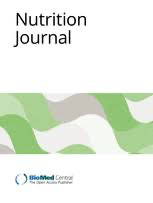
Pomegranate (Punica granatum L.) peel extract ameliorates metabolic syndrome risk factors in patients with non-alcoholic fatty liver disease: a randomized double-blind clinical trial
2023 Aug 22 Nutrition Journal Barghchi H, Milkarizi N, Belyani S, Norouzian Ostad A, Askari VR, Rajabzadeh F, et al.
Randomised Controlled Trial NAFLD Pomegranate PeelPomegranate peel extract, along with a calorie deficit diet, could improve risk factors of metabolic syndrome and reduce fatty liver in patients with non-alcoholic fatty liver disease.

Adjuvant pomegranate juice intake improves the inflammatory status of hospitalized COVID-19 patients: A randomized and placebo-controlled trial
2023 Aug Complementary Therapies in Medicine Yousefi M, Sadriirani M, Mahmoodi S, Samimi B, Pourmahmoudi A, Hosseinikia M, et al.
Randomised Controlled Trial Inflammation Common Cold, Flu & Viral Infections COVID-19 CRPPomegranate juice consumption appears to somewhat enhance inflammatory status and complete blood count in hospitalized COVID-19 patients.

The effect of concentrated pomegranate juice on biomarkers of inflammation, oxidative stress, and sex hormones in overweight and obese women with polycystic ovary syndrome: A randomized controlled trial
2023 Jan 18 Phytotherapy Research Abedini M, Ramezani‐Jolfaie N, Ghasemi‐Tehrani H, Tarrahi MJ, Amani R
Randomised Controlled Trial PCOS Pomegranate TestosteronePomegranate juice supplementation has been found to effectively decrease testosterone levels in overweight and obese women diagnosed with polycystic ovary syndrome.

Does pomegranate extract supplementation improve the clinical symptoms of patients with allergic asthma? A double-blind, randomized, placebo-controlled trial
2023 Jan 25 Frontiers in Pharmacology Hosseini SA, Shateri Z, Abolnezhadian F, Maraghi E, Haddadzadeh Shoushtari M, Zilaee M
Randomised Controlled Trial Asthma PomegranatePomegranate extract supplements can help improve clinical symptoms and lower blood cell counts associated with inflammation in patients with allergic asthma.
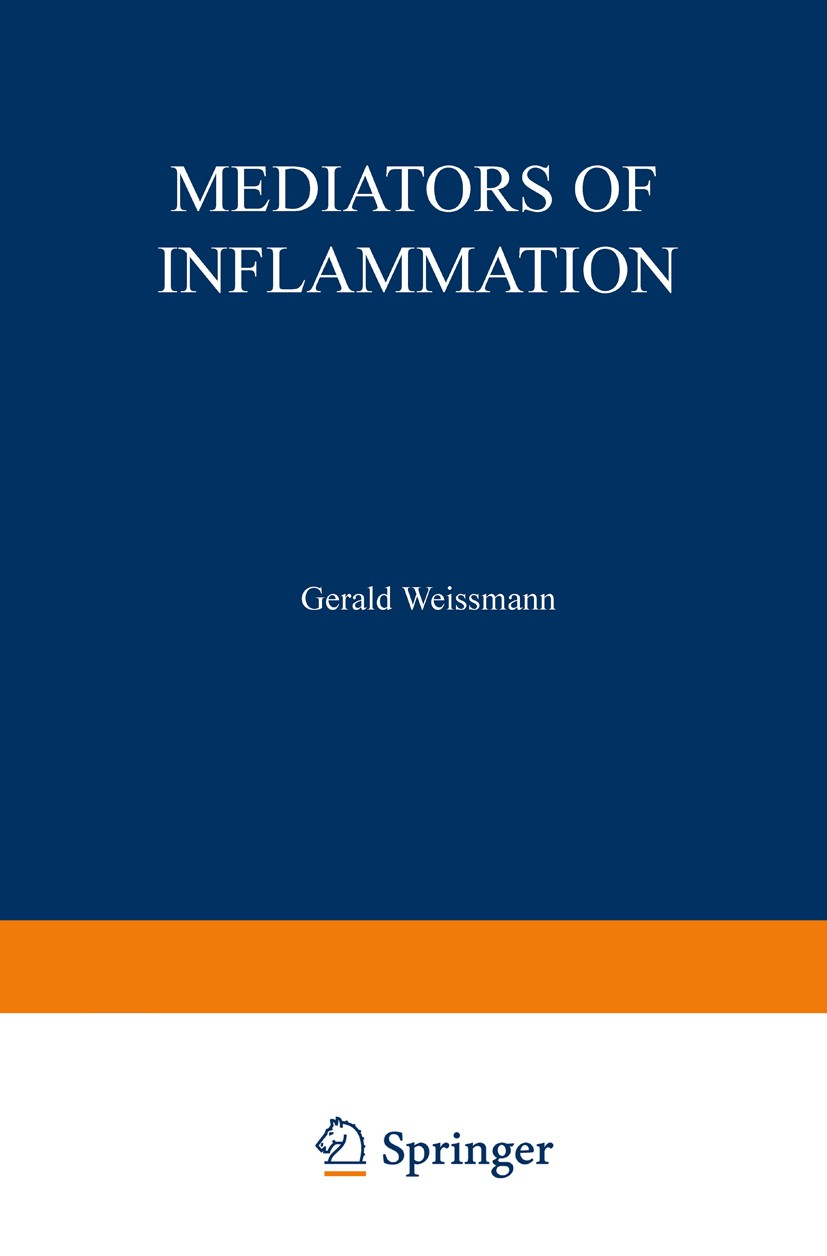
The Effect of Pomegranate Juice and Sumac Consumption in the Treatment of Outpatients with COVID-19
2022 Nov 30 Mediators of Inflammation Forouzanfar F, Ahmadpoor M, Farahi MM, Hadianfar A, Sahebkar A, Esmaily H, et al.
Randomised Controlled Trial Clinical Study COVID-19 Sumac PomegranateDrinking pomegranate juice and sumac can help reduce symptoms in outpatients diagnosed with COVID-19, alongside standard treatment.
Study Protocols
Published study protocols are detailed plans that outline the objectives, methodology, statistical analyses, and organisation of a research study that have been made publicly available for others to review and use as a reference.
Presentation Slides

Review Article
Pomegranate extract could potentially benefit women's reproductive health, enhance fertility, regulate menstrual cycles, support pregnancy, and help treat polycystic ovary syndrome.
Jang JY, Kim D, Im E, Kim ND

Systematic Review
Pomegranate fruit and its phytochemicals may offer a novel, natural alternative for the treatment of pathological anxiety, with fewer adverse effects than traditional medications.
Flores-Bazán T, Betanzos-Cabrera G, Guerrero-Solano JA, Negrete-Díaz JV, German-Ponciano LJ, Olivo-Ramírez D

Systematic Review
Pomegranate can significantly enhance women's health during and after menopause by reducing hot flashes severity and other menopause symptoms.
Moeini R, Shirafkan H, Gorji N

Review Article
Pomegranate and its by-products, particularly the peel, contain bioactive compounds with potential antimicrobial, anticancer and antiviral properties.
Valero-Mendoza AG, Meléndez-Rentería NP, Chávez-González ML, Flores-Gallegos AC, Wong-Paz JE, Govea-Salas M, Zugasti-Cruz A, Ascacio-Valdés JA

Systematic Review
Pomegranate consumption positively affects triglycerides, low-density lipoprotein cholesterol, and high-density lipoprotein cholesterol levels.
Bahari H, Rezaiian F, Goudarzi K, Nooshan Mirmohammadali S, Asbaghi O, sadat Hosseini kolbadi K, Naderian M, Hosseini A

Randomised Controlled Trial
Pomegranate peel extract, along with a calorie deficit diet, could improve risk factors of metabolic syndrome and reduce fatty liver in patients with non-alcoholic fatty liver disease.
Barghchi H, Milkarizi N, Belyani S, Norouzian Ostad A, Askari VR, Rajabzadeh F, Goshayeshi L, Ghelichi Kheyrabadi SY, Razavidarmian M, Dehnavi Z, Sobhani SR, Nematy M

Randomised Controlled Trial
Pomegranate juice consumption appears to somewhat enhance inflammatory status and complete blood count in hospitalized COVID-19 patients.
Yousefi M, Sadriirani M, Mahmoodi S, Samimi B, Pourmahmoudi A, Hosseinikia M, Sadeghi O, Roustaei N, Saeedinezhad Z, Espín JC, Ansari S, Panahande SB
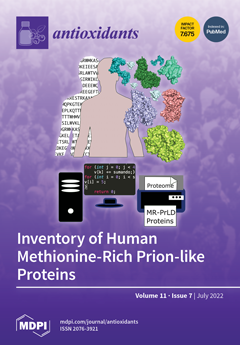
Review Article
Pomegranate and its components could offer considerable potential as dietary supplements or supports in treatment for cardiovascular and non-cardiovascular diseases.
Benedetti G, Zabini F, Tagliavento L, Meneguzzo F, Calderone V, Testai L

Randomised Controlled Trial
Pomegranate extract supplements can help improve clinical symptoms and lower blood cell counts associated with inflammation in patients with allergic asthma.
Hosseini SA, Shateri Z, Abolnezhadian F, Maraghi E, Haddadzadeh Shoushtari M, Zilaee M

Randomised Controlled Trial
Pomegranate juice supplementation has been found to effectively decrease testosterone levels in overweight and obese women diagnosed with polycystic ovary syndrome.
Abedini M, Ramezani‐Jolfaie N, Ghasemi‐Tehrani H, Tarrahi MJ, Amani R

Review Article
Pomegranate and its active components can protect against natural and chemical toxic agents, impacting mechanisms such as oxidative stress, inflammation, apoptosis, and liver or cardiac function regulation.
Hosseini A, Razavi BM, Hosseinzadeh H

Randomised Controlled Trial
Drinking pomegranate juice and sumac can help reduce symptoms in outpatients diagnosed with COVID-19, alongside standard treatment.
Forouzanfar F, Ahmadpoor M, Farahi MM, Hadianfar A, Sahebkar A, Esmaily H, Nematy M, Rakhshandeh H
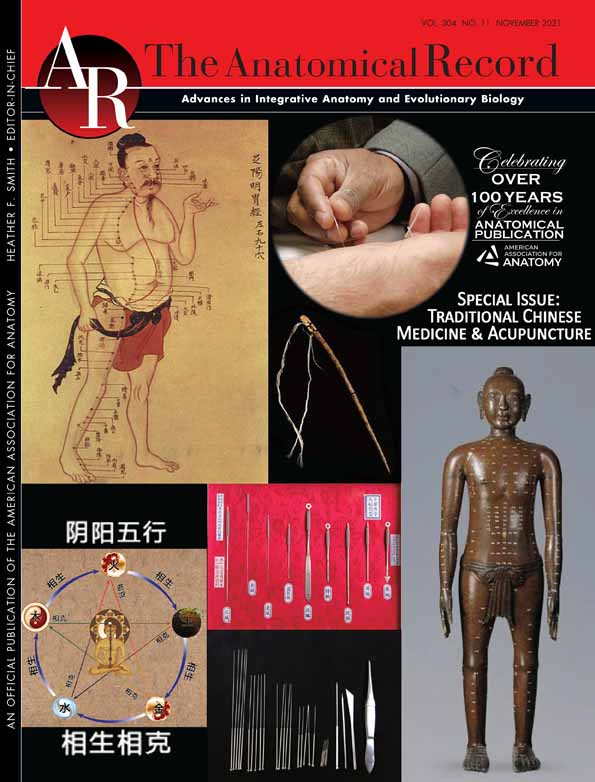
Experimental Study
Pomegranate has been found to alleviate morphological and functional changes in the thyroid glands induced by Lithium Carbonate by controlling apoptosis and oxidative stress.
El‐Din WAN, Fadel R, Rashid A, Al‐Mahameed AE, Othman MA

Randomised Controlled Trial
Pomegranate extract consumption improves antioxidant levels, reduces oxidative stress and cardiovascular risk factors including blood pressure and body fat, and increases lean body mass.
Al-Dujaili EAS, Casey C, Stockton A
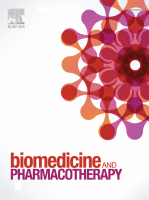
Review Article
Pomegranate extract and its phytochemicals can potentially inhibit severe acute respiratory syndrome coronavirus 2 (SARS-COV-2) and improve gut microbiota, preventing obesity and diabetes.
Maphetu N, Unuofin JO, Masuku NP, Olisah C, Lebelo SL

Experimental Study
Pomegranate juice extract may reduce the damage to the endometrium in Polycystic ovary syndrome through its antioxidant, anti-inflammatory, anti-fibrotic, and anti-proliferative effects.
Ibrahim MAA, Sadek MT, Sharaf Eldin HEM

Review Article
The underutilized pomegranate peel, full of abundant bioactive substances, could be repurposed for its potential health benefits like anti-inflammatory, anti-cancer, cardiovascular protection, and antibacterial activities.
Mo Y, Ma J, Gao W, Zhang L, Li J, Li J, Zang J

Review Article
Ellagic acid, commonly found in various plant foods, can enhance cancer treatment by boosting the effects of chemotherapy and radiotherapy while reducing their side effects.
Xue P, Zhang G, Zhang J, Ren L
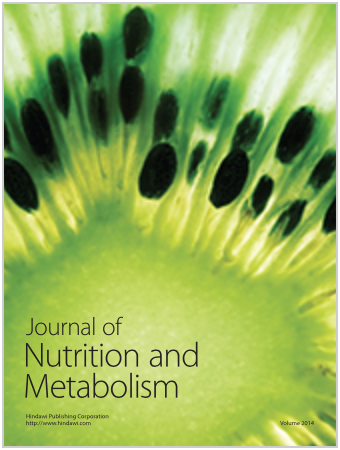
Review Article
Pomegranate juice, due to its unique bioactive compounds, could potentially alleviate complications related to SARS-CoV-2 infections, especially in patients with pre-existing chronic diseases.
Banihani SA
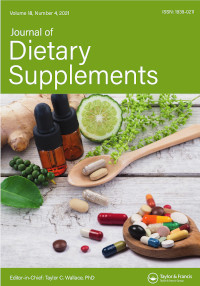
Randomised Controlled Trial
The proprietary herbal blend LN18178 significantly boosts testosterone levels, muscle strength and mid-upper arm circumference in young, healthy males.
Sreeramaneni PGA, Yalamanchi A, Konda MR, Cherukuri SHV, Maroon JC

Randomised Controlled Trial
Four weeks' treatment with pomegranate supplement greatly helps in alleviating menopausal symptoms and enhancing the quality of life in menopausal women.
Adel-Mehraban MS, Tansaz M, Mohammadi M, Yavari M
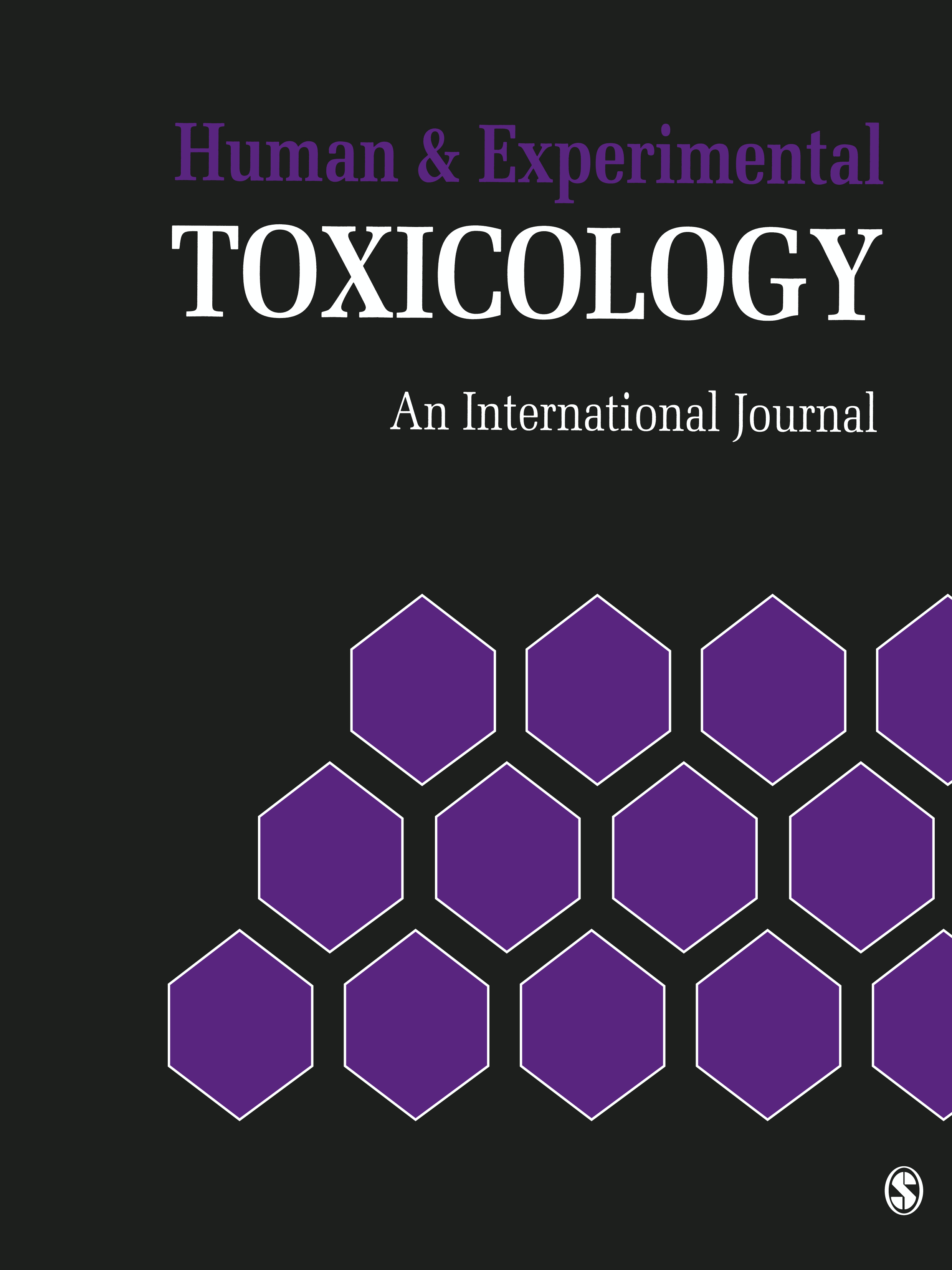
Experimental Study
Ellagic acid, found naturally in pomegranates, significantly inhibits growth and migration of gastric cancer cells without causing notable side effects.
Cheshomi H, Bahrami AR, Rafatpanah H, Matin MM
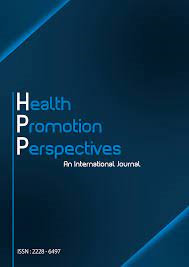
Systematic Review
Pomegranate has been confirmed to improve clinical features and reduce inflammatory, oxidative stress, and apoptosis markers in osteoarthritis.
Malek Mahdavi A, Javadivala Z
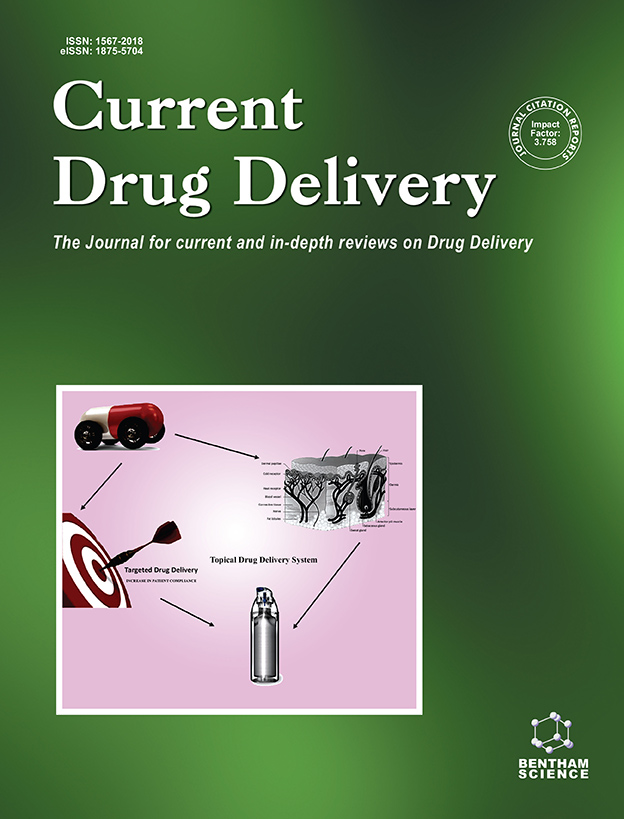
Review Article
Pomegranate juice and its bioactive components may serve as cost-effective, next-generation non-pharmacologic anticancer therapies, particularly against colorectal and prostate cancer.
Hussein L, Gouda M, Buttar HS

Review Article
The pomegranate plant has a rich inventory of phytochemical constituents showing pharmacological efficiency in treating cardiovascular and endocrine diseases.
Eghbali S, Askari SF, Avan R, Sahebkar A

Randomised Controlled Trial
Pomegranate extract supplement shows potential in improving glycemic indicators, serum lipids, anthropometrics, and blood pressure in patients with nonalcoholic fatty liver disease.
Goodarzi R, Jafarirad S, Mohammadtaghvaei N, Dastoorpoor M, Alavinejad P
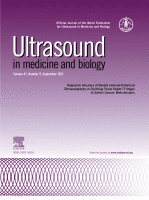
Randomised Controlled Trial
A new method for assessing the effects of therapies on atherosclerosis shows that pomegranate juice/extract has a significant influence on carotid vessel-wall-plus-plaque thickness.
Zhao Y, Spence JD, Chiu B
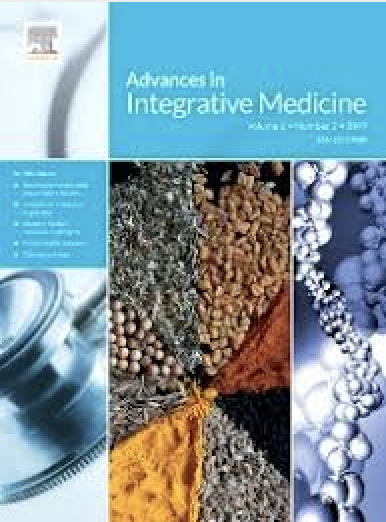
Randomised Controlled Trial
Pomegranate peel extract supplementation can decrease total cholesterol and triglyceride levels while boosting antioxidant status in obese women with knee osteoarthritis.
Haghighian MK, Rafraf M, Hemmati S, Haghravan S, Asghari-Jafarabadi M

Review Article
Pomegranate has a variety of phytochemicals which possess wide-ranging activities including antioxidant, antimicrobial, anti-oncogenic properties, and resistance to cerebrovascular disease.
Ge S, Duo L, Wang J, GegenZhula , Yang J, Li Z, Tu Y
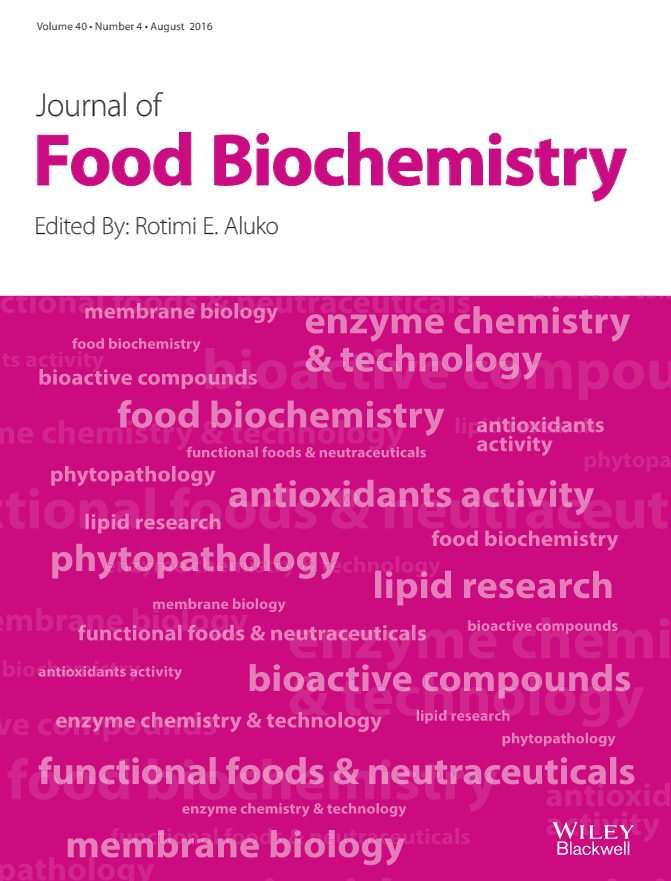
Review Article
Pomegranate demonstrates anti-proliferative, anti-oxidant, anti-inflammatory properties that can effectively control the progression of various respiratory diseases.
Shaikh SB, Bhandary YP

Clinical Study
Pomegranate polyphenols have shown strong potential in preventing and treating breast cancer through various anti-cancer effects.
Moga MA, Dimienescu OG, Bălan A, Dima L, Toma SI, Bîgiu NF, Blidaru A

Experimental Study
Pomegranate juice extract (PPJE) appears to reduce chemotherapy-induced skin side effects by inhibiting inflammation and promoting wound repair on the skin.
Rapa SF, Magliocca G, Pepe G, Amodio G, Autore G, Campiglia P, Marzocco S

Systematic Review
Pomegranate consumption can effectively manage rheumatoid arthritis complications by reducing inflammation and oxidative stress without adverse effects.
Malek Mahdavi A, Seyedsadjadi N, Javadivala Z

Experimental Study
Pomegranate seed oil, rich in conjugated linolenic acid, potentially acts as a cytotoxic agent on tissue tumor cells, reducing polycystic ovary syndrome manifestations.
Bahmani M, Shokri S, Akhtar ZN, Abbaszadeh S, Manouchehri A

Meta-Analysis
The study reveals that pomegranate juice does not significantly affect vascular adhesion factors, but can effectively reduce the inflammatory marker, interleukin-6.
Asgary S, Karimi R, Joshi T, Kilpatrick KL, Moradi S, Samimi Z, Mohammadi E, Farzaei MH, Bishayee A
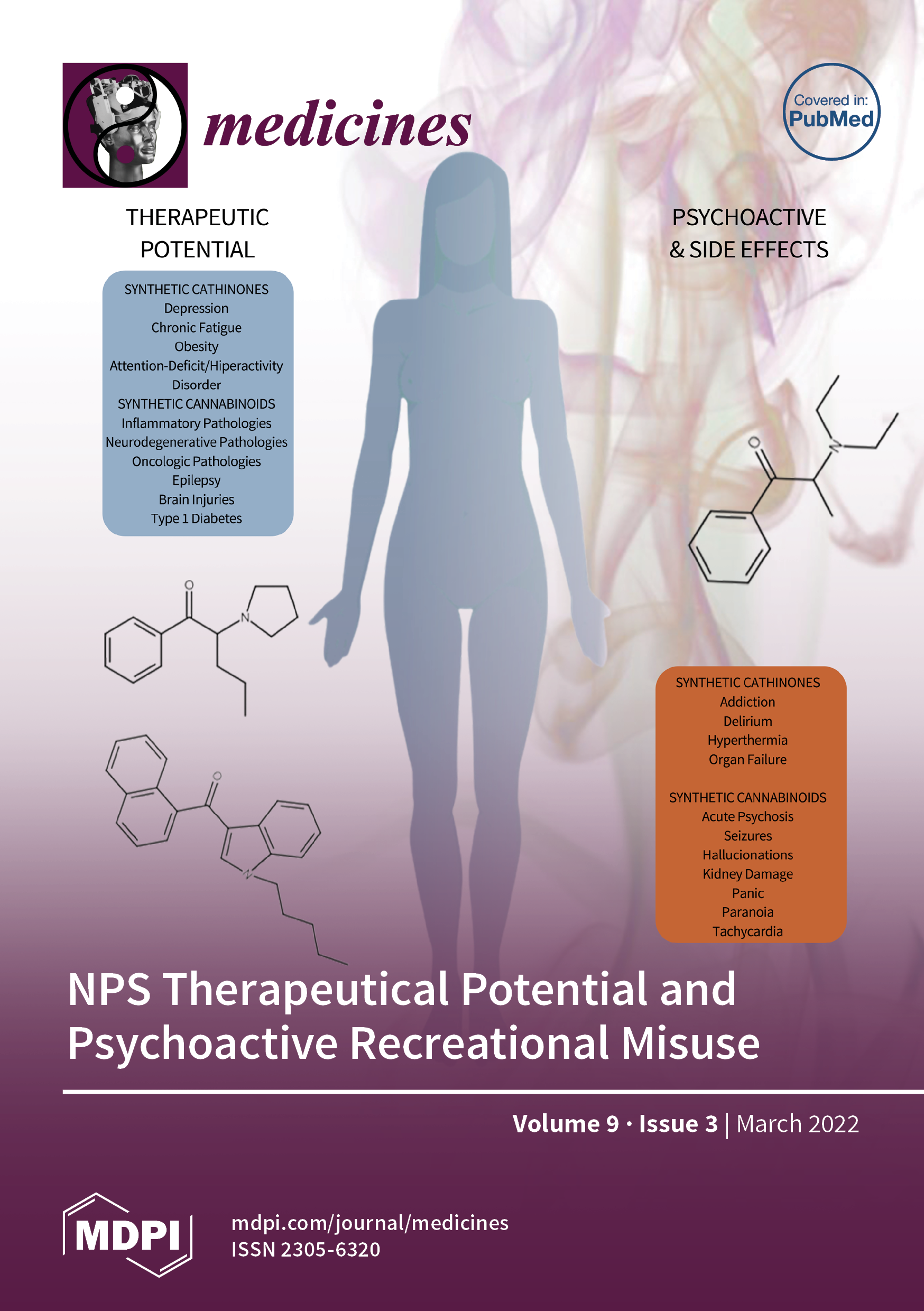
Experimental Study
Pomegranate juice increases the effectiveness of lung cancer treatment with the low dose chemotherapy drug Cisplatin, while simultaneously reducing its toxicity on normal cells.
Nasser M, Damaj Z, Hijazi A, Merah O, Al-Khatib B, Hijazi N, Trabolsi C, Damaj R, Nasser M

Review Article
Pomegranate possesses significant biological and nutraceutical value with potential applications against a wide spectrum of diseases due to its rich phytochemical composition.
Caruso A, Barbarossa A, Tassone A, Ceramella J, Carocci A, Catalano A, Basile G, Fazio A, Iacopetta D, Franchini C, Sinicropi MS

Randomised Controlled Trial
Concentrated pomegranate juice consumption can potentially lower cardiovascular disease risk factors in women with polycystic ovary syndrome.
Abedini M, Ghasemi‐Tehrani H, Tarrahi MJ, Amani R
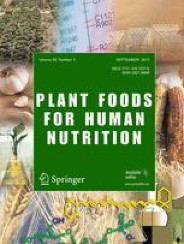
Experimental Study
Pomegranate juice has potential beyond ascorbic acid alone in enhancing iron absorption and assimilation, supporting Ayurveda's proposition of managing iron deficiency anemia with pomegranate.
Balasubramani SP, Varghese RK, Vishnuprasad CN, Venkatasubramanian P
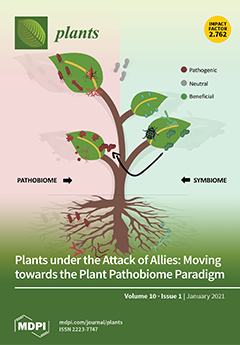
Review Article
Pomegranate, due to its polyphenols, flavonoids and fatty acids, exhibits significant pain-relieving effects and could potentially be used as a treatment for various types of pain.
Guerrero-Solano JA, Jaramillo-Morales OA, Velázquez-González C, De la O-Arciniega M, Castañeda-Ovando A, Betanzos-Cabrera G, Bautista M

Meta-Analysis
Pomegranate juice supplementation notably diminishes inflammation and vascular dysfunction markers in adults, offering potential cardiovascular health benefits.
Wang P, Zhang Q, Hou H, Liu Z, Wang L, Rasekhmagham R, Kord-Varkaneh H, Santos HO, Yao G
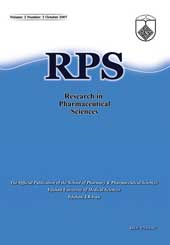
Network Pharmacology
Pomegranate fruit extract significantly enhances cartilage gene expression and chondrogenesis in human adipose-derived stem cells compared to Avocado/Soybean Unsaponifiable.
Bahramian H, Teimourinejad A, Hashemibeni B, Salehi H, Mostafavi FS, Kazemi M
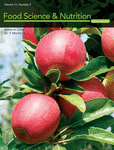
Randomised Controlled Trial
Pomegranate juice can reduce melatonin, increase insulin levels, and improve insulin resistance in individuals with impaired fasting glucose.
Banihani SA, Fashtaky RA, Makahleh SM, El‐Akawi ZJ, Khabour OF, Saadeh NA

Randomised Controlled Trial
Synbiotic pomegranate juice daily consumption for 8 weeks enhances metabolic, oxidative, inflammatory, and blood pressure outcomes in females with Polycystic Ovarian Syndrome.
Esmaeilinezhad Z, Barati-Boldaji R, Brett NR, de Zepetnek JOT, Bellissimo N, Babajafari S, Sohrabi Z

Animal Study
Pomegranate rind extract has been found to decrease pain and inflammation, suggesting it could contribute to treating rheumatoid arthritis.
Karwasra R, Singh S, Sharma D, Sharma S, Sharma N, Khanna K
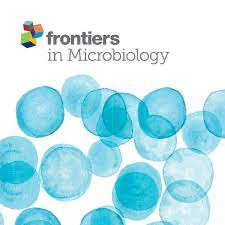
Experimental Study
Pomegranate extracts and a probiotic strain have shown a combined effect in reducing fat content and the development of fat cells, potentially useful in preventing and treating obesity.
Sorrenti V, Randazzo CL, Caggia C, Ballistreri G, Romeo FV, Fabroni S, Timpanaro N, Raffaele M, Vanella L
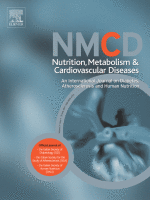
Randomised Controlled Trial
Synbiotic pomegranate juice (containing inulin and lactobacillus) can improve insulin resistance, reduce testosterone level, and aid weight loss in women suffering from Polycystic Ovarian Syndrome.
Esmaeilinezhad Z, Babajafari S, Sohrabi Z, Eskandari MH, Amooee S, Barati-Boldaji R
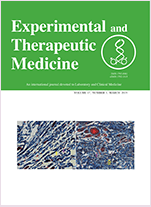
Randomised Controlled Trial
Pomegranate juice consumption over a short period promotes red blood cell production without significantly changing metabolic health and inflammation markers in healthy individuals.
Manthou E, Georgakouli K, Deli CK, Sotiropoulos A, Fatouros IG, Kouretas D, Haroutounian S, Matthaiou C, Koutedakis Y, Jamurtas AZ

Randomised Controlled Trial
Pomegranate juice intake can reduce systolic and diastolic blood pressure and inflammation markers, but may increase triglyceride and very low-density lipoprotein cholesterol levels.
Moazzen H, Alizadeh M
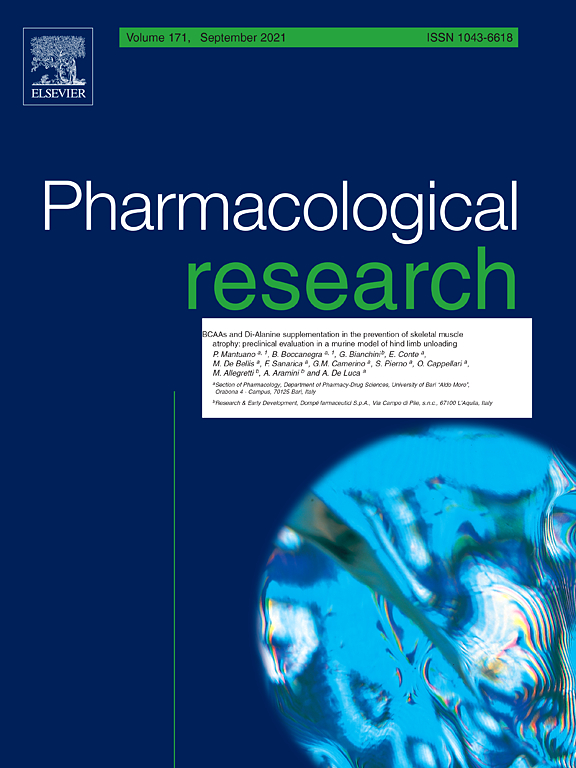
Meta-Analysis
Consuming pomegranate juice consistently can lead to significant reductions in both systolic and diastolic blood pressure, suggesting its potential cardioprotective benefits.
Sahebkar A, Ferri C, Giorgini P, Bo S, Nachtigal P, Grassi D

Clinical Study
Pomegranate juice improves physical function and stiffness, decreases cartilage breakdown enzymes and enhances antioxidant status in patients with knee osteoarthritis.
Ghoochani N, Karandish M, Mowla K, Haghighizadeh MH, Jalali MT

Experimental Study
Pomegranate juice extract significantly improves hormonal changes in female rats with Polycystic Ovary Syndrome.
HOSSEIN KARGAR, LEILA KARGAR, EBRAHIM TAVAKOL, NAZANIN SHAFIEI, FARZAD POORGHOLAMI, ELHAM RAHMANIAN, MOHAMMAD POURAHMADI, ZAHRA HASANPOUR
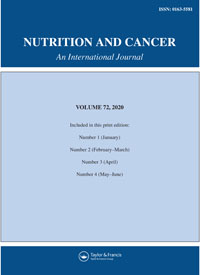
Clinical Study
Pomegranate juice consumption slightly decreases estrone and testosterone levels in normal weight postmenopausal women.
Kapoor R, Ronnenberg A, Puleo E, Chatterton Jr. RT, Dorgan JF, Seeram NP, Sturgeon SR

Experimental Study
Pomegranate Fruit Extract (PFE) can potentially mitigate testosterone-induced Benign Prostatic Hyperplasia in rats due to its anti-inflammatory, antioxidant and pro-apoptotic properties.
Ammar AE, Esmat A, Hassona MDH, Tadros MG, Abdel‐Naim AB, Guns EST
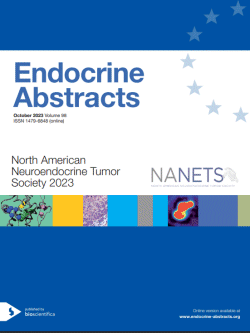
Randomised Controlled Trial
Pomegranate extract intake, rich in biophenols, lessens salivary cortisol levels, hence potentially improving health-related quality of life, particularly in stress-suffering individuals.
Stockton A, Al-Dujaili E

Clinical Study
Pomegranate juice intake for two weeks significantly reduces blood pressure and may improve heart health by lowering vascular endothelial adhesion molecule-1 levels.
Asgary S, Sahebkar A, Afshani MR, Keshvari M, Haghjooyjavanmard S, Rafieian‐Kopaei M

Experimental Study
Pomegranate juice can enhance memory function and brain activity in tasks related to verbal and visual memory in older adults experiencing memory problems.
Bookheimer SY, Renner BA, Ekstrom A, Li Z, Henning SM, Brown JA, Jones M, Moody T, Small GW

Review Article
Pomegranates and their extracts may provide natural alternatives to conventional drugs due to their potent activity against various bacterial and viral pathogens.
Howell AB, D'Souza DH

Experimental Study
Pomegranate polyphenols have notable antioxidant and antiatherogenic effects that lessen cholesterol, oxidized lipids accumulation, and atherosclerosis development in arterial macrophages.
Aviram M, Rosenblat M
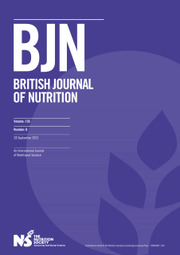
Animal Study
Pomegranate extracts enhance bone formation and increase bone calcium content in mice.
Monsefi M, Parvin F, Talaei-Khozani T

Experimental Study
Pomegranate extract can inhibit key cellular pathways and activities involved in the progression of osteoarthritis.
Rasheed Z, Akhtar N, Haqqi TM

Punicalagin, extracted from the fruit peel of Punica granatum, displays strong antifungal activity against Candida species, especially when combined with fluconazole.
Endo EH, Garcia Cortez DA, Ueda-Nakamura T, Nakamura CV, Dias Filho BP
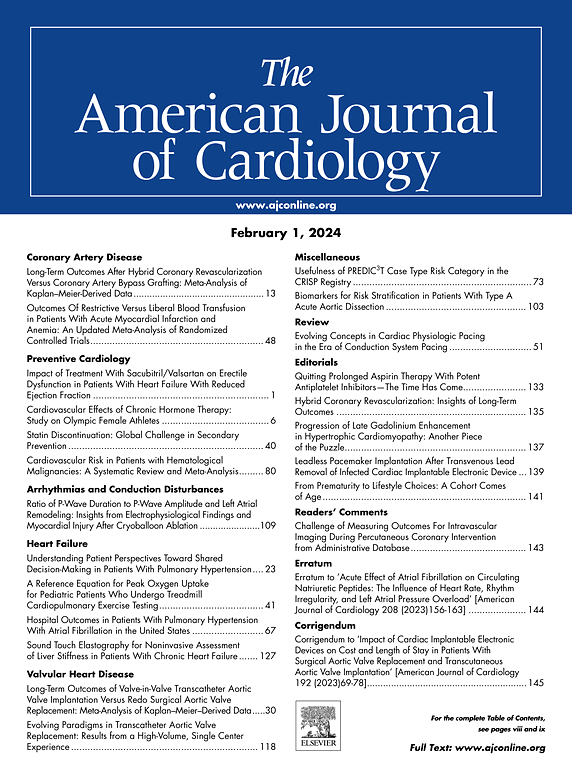
Randomised Controlled Trial
Pomegranate juice consumption doesn't significantly affect overall progress of carotid intima-media thickness, but may slow its progression in subjects with high oxidative stress and lipid issues.
Davidson MH, Maki KC, Dicklin MR, Feinstein SB, Witchger MS, Bell M, McGuire DK, Provost JC, Liker H, Aviram M

Clinical Study
Consumption of pomegranate juice by patients with carotid artery stenosis decreases carotid intima-media thickness and systolic blood pressure, potentially due to its strong antioxidant properties.
Aviram M, Rosenblat M, Gaitini D, Nitecki S, Hoffman A, Dornfeld L, Volkova N, Presser D, Attias J, Liker H, Hayek T
Executive Summary
Write an executive summary in the form of a blog article on the topic of "Research into Chinese medicine treatment for Pomegranate" summarising the research below and using language that can be easily understood by patients and avoiding medical jargon using a professional and caring tone of voice.
Write an executive summary in the form of a blog article on the topic of "Researched Chinese medicine treatments for Pomegranate" summarising the research below in an objective and easy to understand way, and using language that can be easily understood by patients. Group the article into Chinese medicine treatments first, followed by nutrition and other treatments. Avoid using medical jargon and use a professional and caring tone of voice.
Write me a concise but easy to understand executive summary on the topic of "Chinese medicine treatments for Pomegranate" based on the following research that I will give you. Your summary should be 2 paragraphs long in Australian English spelling and include references to the studies.
A Review Article published in 2024 in the journal Life found that Pomegranate extract could potentially benefit women's reproductive health, enhance fertility, regulate menstrual cycles, support pregnancy, and help treat polycystic ovary syndrome. In establishing the potential benefits of pomegranate extract in women's reproductive health, a wide array of methods was employed. Primarily, these included in vitro studies, animal modeling and certain clinical trials. Analyses of the antioxidant properties of the extract were done to ascertain its effectiveness in reducing oxidative stress and consequently, improving fertility. The influence of pomegranate extract on hormonal imbalances and menstrual regulation was also studied. Discussions on the results emphasized the potential of pomegranate extract in supporting women's reproductive health. The extract was found beneficial in enhancing fertility, regulating menstruation and supporting pregnancy. Further, it could help in polycystic ovary syndrome therapy by improving insulin sensitivity and reducing oxidative damage. Its rich nutrient composition was appreciated for potentially fostering placental development and fetal growth, thus possibly mitigating the risk of early birth. Apart from reproductive health, some studies pointed towards pomegranate extract's potential anticancer properties, primarily against breast cancer.
A Systematic Review published in 2023 in the journal Brain Research found that Pomegranate fruit and its phytochemicals may offer a novel, natural alternative for the treatment of pathological anxiety, with fewer adverse effects than traditional medications. Using a systematic review methodology, the researchers explored the potential anxiolytic (or anxiety-reducing) effects of pomegranate (PG) fruit and its natural compounds. Searches were conducted across numerous databases such as PubMed, ScienceDirect, Google Scholar, WorldWide Science, and Web of Science using specific predetermined terms. Only original articles meeting established inclusion criteria were chosen for review. The data collected from these articles provided information on the part and variety of pomegranates used, the species studied, sample size, anxiety model, dose, route and time of administration, reference drug, main results, and associated mechanisms of action. The review of 59 such studies revealed PG as well as compounds it contains - specifically anthocyanins, flavonoids, tannins, organic acids, and xanthonoids - as having potential anxiolytic effects. According to the existing literature, these effects appear to be driven by several molecular mechanisms. These include the inhibition of specific anxiety-linked receptors, activation of certain cellular pathways associated with anxiety reduction and resilience, modulation of inflammatory proteins, and reduction of oxidative stress. The results position pomegranate and its phytochemicals as a potentially new natural option for the treatment of anxiety disorders. This is the first review to focus on the anxiolytic impact of pomegranates.
A Systematic Review published in 2023 in the journal Phytotherapy Research found that Pomegranate can significantly enhance women's health during and after menopause by reducing hot flashes severity and other menopause symptoms. The study aimed at understanding the impacts of pomegranate on women's health through and following menopause. To gather data, a rigorous search was conducted on various academic platforms, including PubMed, Web of Science, Cochrane, Scopus, and Google Scholar, up to the end of 2022. All forms of clinical research studies, from randomized clinical trials to case series, were considered for review. The material was evaluated using the Cochrane RoB 2.0 tool specifically for quality assessment of randomized clinical trials. To quantify the effects of the pomegranate intervention, standardized mean differences were calculated using a random effect model. It was found that pomegranate significantly reduces the severity of hot flashes in menopausal women, improves their high-density lipoprotein levels, and reduces the Follicle-Stimulating Hormone (FSH). However, no significant improvement was noticed in the low-density lipoprotein, body mass index, and body weight. Despite these findings, the study recognized that the results' conclusiveness was hampered due to small sample sizes and the lack of study design elements such as blinding and randomization.
A Review Article published in 2023 in the journal Food Chemistry Advances found that Pomegranate and its by-products, particularly the peel, contain bioactive compounds with potential antimicrobial, anticancer and antiviral properties. In the methodological approach of the study, a comprehensive review was undertaken to collate information on the bioactive components found within pomegranates and their by-products (aril, seed, and peel). The study emphasized the pomegranate peel's properties owing to its high content of the bioactive compounds. The aim was to elucidate the nutritional and functional aspects of pomegranates, particularly as a functional food. The results outlined that pomegranates, especially their peel, contain bioactive compounds, including punicalagin, punicalin, ellagic acid, punicic acid, and anthocyanins. Therefore, they have potential functional properties such as antimicrobial, anticancer, and antiviral characteristics. These results suggest that pomegranates could be explored to develop nutraceutical or functional food products due to their profound properties. The peel of the pomegranate, specifically, showcases significant potential for development due to its higher bioactive compound content compared to other parts of the fruit.
A Systematic Review published in 2023 in the journal Journal of Functional Foods found that Pomegranate consumption positively affects triglycerides, low-density lipoprotein cholesterol, and high-density lipoprotein cholesterol levels. To investigate the impact of pomegranate on lipid profiles, a comprehensive database search was completed up until June 2023, aiming to identify related trials. Statistically, the researchers employed the estimated 95% confidence and the weighted mean difference to measure the variables, including triglycerides, total cholesterol, high-density lipoprotein cholesterol, and low-density lipoprotein cholesterol. They employed a random-effects model for their analysis. The meta-analysis revealed that pomegranate intake significantly reduces triglyceride levels. Still, it doesn't notably alter the total cholesterol concentrations. Additionally, consuming pomegranate seemed to have a diminishing impact on low-density lipoprotein cholesterol levels and an enhancing effect on high-density lipoprotein cholesterol levels.
A Randomised Controlled Trial published in 2023 in the journal Nutrition Journal found that Pomegranate peel extract, along with a calorie deficit diet, could improve risk factors of metabolic syndrome and reduce fatty liver in patients with non-alcoholic fatty liver disease. In the first phase, the research involved the hydro-alcoholic extraction of the peel of 750 kilograms of pomegranate using the soaking method. The second phase saw patients with non-alcoholic fatty liver disease divided into two groups - a placebo group and a pomegranate peel capsule group. Both groups followed a diet with a 500 kcal deficit for eight weeks. Aspects like intolerance to the treatment, participants' dietary intake, their lipid and glycemic profiles, blood pressure, body composition, insulin resistance indexes and changes in fatty liver disease evaluated through elastography were monitored. Further, the study reported substantial decreases in multiple indicators such as body weight, waist circumference, body mass index, body fat index, trunk fat, blood pressure, total cholesterol, triglyceride levels, LDL cholesterol, fat free mass, and fasting blood sugar in the group that took pomegranate peel capsules compared to the placebo group. Meanwhile, HDL cholesterol and liver steatosis and stiffness saw improvement. No significant differences, however, were found in the insulin and homeostatic model assessment for insulin resistance between the two groups.
A Randomised Controlled Trial published in 2023 in the journal Complementary Therapies in Medicine found that Pomegranate juice consumption appears to somewhat enhance inflammatory status and complete blood count in hospitalized COVID-19 patients. The study was a randomized, double-blinded placebo-controlled trial involving 48 patients and had two parallel arms. As part of their standard hospital care, patients were either given 500 mL of whole pomegranate juice daily or a placebo for a period of 14 days. The researchers focused on measuring inflammatory indicators and complete blood counts both at the start of the study and at the end of the 14-day intervention period. Following the 14-day intervention, there was a distinguishable decrease in primary outcomes including inflammatory markers such as C reactive protein, interleukin-6, and erythrocyte sedimentation rate in the group that consumed pomegranate juice as compared to the readings before the intervention. In addition, considerable changes were also observed in secondary outcomes such as neutrophils, lymphocytes, platelets, platelets-to-lymphocyte and neutrophils-to-lymphocyte ratios in the pomegranate juice group compared to the parameters before the intervention. Finally, the mean changes in levels of interleukin-6, white blood cells, neutrophils, lymphocyte, platelets, platelets-to-lymphocyte ratio, blood oxygen saturation and MCV were significantly different between the two groups by the end of intervention, while no significant difference was noted in other blood indices.
A Review Article published in 2023 in the journal Antioxidants found that Pomegranate and its components could offer considerable potential as dietary supplements or supports in treatment for cardiovascular and non-cardiovascular diseases. The review examines a myriad of recent preclinical and clinical studies focusing on pomegranate. To harness the health benefits of pomegranate, different components were extracted and studied. These include juice from the fruit's edible arils, oil from the seeds, and bioactive products from the typically discarded peel. The research also considers advances in encapsulation and green extraction techniques to optimize the use of waste pomegranate products. The studies suggest promising beneficial effects of pomegranate in diverse areas. Though challenges remain, such as limited oral bioavailability and uncertainty concerning the role of active metabolites, the collective findings offer crucial insight into the significant potential of pomegranate as a dietary supplement or co-therapy for a range of diseases, especially cardiovascular and non-cardiovascular ones.
A Randomised Controlled Trial published in 2023 in the journal Frontiers in Pharmacology found that Pomegranate extract supplements can help improve clinical symptoms and lower blood cell counts associated with inflammation in patients with allergic asthma. In this study, 64 participants with mild to moderate allergic asthma were randomly divided into two groups: a control group which was given placebo capsules and an intervention group which was given pomegranate extract capsules. The intervention group was administered a dosage of 250 milligrams of pomegranate extract twice daily over a period of eight weeks. The clinical symptoms and blood cell counts of all the participants were measured before starting the intervention and post the completion of it. The results of the study indicated that the group which was given pomegranate extract exhibited considerable improvement in clinical symptoms like shortness of breath and restrictions on activity, as compared to the control group. Additionally, the participants in the intervention group displayed a substantive drop in eosinophil, basophil, and neutrophil counts. Notably, there was a statistically significant difference in the neutrophil and eosinophil levels between the two groups, which suggests that pomegranate extract supplementation might have potential therapeutic benefits for asthma patients.
A Randomised Controlled Trial published in 2023 in the journal Phytotherapy Research found that Pomegranate juice supplementation has been found to effectively decrease testosterone levels in overweight and obese women diagnosed with polycystic ovary syndrome. In the methodology, the study employed a randomized controlled trial which involved 44 participants. The women, aged between 18 and 40 years, had all been diagnosed with polycystic ovary syndrome and had a body mass index exceeding 25 kg/m. They were randomly divided, with one group consuming 45 ml/day of concentrated pomegranate juice and the other group receiving no intervention. A variety of biomarkers for sex hormones, inflammation, and oxidative stress were measured before starting the trial and again after eight weeks. Further discussion of the results revealed a significant decrease in testosterone levels among the overweight and obese women with polycystic ovary syndrome who took concentrated pomegranate juice over the eight week period, in contrast to those in the control group. Apart from testosterone, no significant changes were observed for luteinizing hormone, sex hormone-binding globulin levels or for markers of inflammation and oxidative stress between the two groups.
A Review Article published in 2023 in the journal Phytomedicine found that Pomegranate and its active components can protect against natural and chemical toxic agents, impacting mechanisms such as oxidative stress, inflammation, apoptosis, and liver or cardiac function regulation. This paper is a review of various in vivo and in vitro studies focusing on pomegranate (Punica granatum) and its active components, including ellagic acid and punicalagin, and their protective effects against toxic substances. The articles were sourced from multiple databases like Web of Sciences, Google Scholar, PubMed, and Scopus spanning all available time periods until the end of September 2022. The research indicates that pomegranate and its constituents have showcased protective effects against both natural toxins, such as aflatoxins and endotoxins, and chemical toxicants like arsenic, diazinon, and carbon tetrachloride. This protection is attributed to the preventive mechanisms activated against oxidative stress, reduction of key inflammatory mediators, modulation of apoptosis, and signaling pathways associated with cellular growth. Additionally, these components appear to aid in the improvement of liver and cardiac function through the regulation of key enzymes.
A Randomised Controlled Trial published in 2022 in the journal Mediators of Inflammation found that Drinking pomegranate juice and sumac can help reduce symptoms in outpatients diagnosed with COVID-19, alongside standard treatment. In the applied methodology, two groups were randomly formed from 182 outpatients with COVID-19. The first group had a diet containing pomegranate juice and sumac, in addition to their standard treatment. The second group, the control group, stuck to the standard treatment only. The results from the study show that outpatients with COVID-19 who consumed a diet containing pomegranate juice and sumac, along with their standard treatment, experienced a significant decrease in their symptoms. Such symptoms include fever, chills, coughing, weakness, smell and taste disorders, shortness of breath, diarrhea, nausea and vomiting, and abdominal pain. This decrease in symptoms was in comparison to the outpatients with COVID-19 who underwent only the standard treatment. Overall, the consumption of pomegranate juice and sumac has shown to be beneficial in reducing COVID-19 related symptoms.
A Experimental Study published in 2022 in the journal The Anatomical Record found that Pomegranate has been found to alleviate morphological and functional changes in the thyroid glands induced by Lithium Carbonate by controlling apoptosis and oxidative stress. The study divided rats into four groups: control, lithium, lithium-pomegranate, and pomegranate. For eight weeks, the rats were treated according to their respective group assignments. Following this period, they were sacrificed, and an array of assessments were conducted on the extracted thyroid glands. These evaluations included estimated levels of thyroid hormones and markers indicating oxidative stress, along with histological, immunohistochemical, and ultrastructural evaluations of the thyroid tissues. Observations in the group treated with lithium carbonate showed significant changes in thyroid hormone levels along with an increased expression of the oxidant marker and decreased expression of the antioxidant marker. Additionally, histological evaluation highlighted disorganization and follicle involution, a decline in both staining intensity and immunoreactivity of an antioxidant enzyme, an increase in collagen fiber content and Bax immunoreactivity, and marked distortions in follicular ultrastructure. However, in the group treated with both lithium carbonate and pomegranate, most of these changes were substantially mitigated, thereby indicating the potential protective role of pomegranate against lithium-induced alterations.
A Randomised Controlled Trial published in 2022 in the journal Antioxidants found that Pomegranate extract consumption improves antioxidant levels, reduces oxidative stress and cardiovascular risk factors including blood pressure and body fat, and increases lean body mass. In the study, 24 healthy participants were divided into two groups: one consumed a natural standardized pomegranate extract, while the other, a placebo, in a randomized, single-blind placebo-controlled trial. Evaluations were conducted at baseline and post 14 and 28 days of the experiment, with variables including anthropometric measurements, blood pressure, pulse wave speed, body composition, as well as the levels of salivary and urinary cortisol, cortisone, total phenolics, antioxidant capacity, and lipid peroxidation. The results indicated significant increases in urinary total phenolics excretion and antioxidant capacity after 14 and 28 days of pomegranate extract intake. By day 28, notable decreases were noted in systolic and diastolic blood pressure, pulse wave velocity, body fat and fat mass, and an increase in lean body mass. In terms of glucocorticoid levels, there was a marked decrease in saliva cortisol at day 28 in the morning for the pomegranate extract group, along with a decrease in the cortisol/cortisone ratio following 28 days of pomegranate extract intake at morning, noon, and evening. Reductions were also seen in urine free cortisol levels by day 14. These observations were unique to the pomegranate extract group, with no significant changes noted in the placebo group.
A Review Article published in 2022 in the journal Biomedicine & Pharmacotherapy found that Pomegranate extract and its phytochemicals can potentially inhibit severe acute respiratory syndrome coronavirus 2 (SARS-COV-2) and improve gut microbiota, preventing obesity and diabetes. The study employs the use of in silico molecular docking methodologies to demonstrate that extract from pomegranates and their phytochemicals can serve as inhibitors of severe acute respiratory syndrome coronavirus 2's spike protein and the angiotensin-converting enzyme 2 receptor contact. These findings are further reinforced by clinical trials which suggest that pomegranates can also alleviate non-alcoholic fatty liver disease, metabolic syndrome, dental infections, and symptoms of menopause. This study has also identified numerous active compounds within pomegranates such as alkaloids, anthocyanidins, tannins, flavonoids, phenolics, proanthocyanidins, sterols, terpenes, terpenoids, xanthonoids, fatty acids, organic acids, lignans, saccharides, and vitamin C. This mixture of active compounds is believed to significantly contribute to the broad array of pharmacological activities identified within the pomegranate. This includes anti-diabetic, anti-tumor, anti-inflammatory, anti-malaria, anti-fibrotic, anti-fungal, and anti-bacterial effects. The extract from this fruit improves gut microbiota which could potentially aid in the prevention of obesity and diabetes.
A Experimental Study published in 2022 in the journal Morphologie found that Pomegranate juice extract may reduce the damage to the endometrium in Polycystic ovary syndrome through its antioxidant, anti-inflammatory, anti-fibrotic, and anti-proliferative effects. To test the possible benefits of pomegranate juice extract (PJE) on endometrial injury in Polycystic ovary syndrome (PCOS), forty adult albino rats were divided into four groups, control, PJE-treated, letrozole-treated (PCOS), and PJE & PCOS groups. The respective treatments were administered for a duration of three weeks. Serum and tissue samples were assayed for Follicle-stimulating hormone, Luteinizing hormone, testosterone, estradiol, and malondialdehyde. Uterine samples were also tested using a range of histological staining techniques and a scanning electron microscope. In the rat model of PCOS, significant increases in certain biochemical indicators in serum samples were observed while uterine sections showed numerous alterations to the endometrium, signs of inflammation and an increase in the endometrial collagen fiber content. Additionally, there was increased expression of certain immunohistochemical staining markers and a decrease in the mean number of pinopodes observed through scanning electron microscopy. However, these various potentially harmful biochemical, histological and immunohistochemical alterations were efficiently reduced with the administration of PJE. This points towards the potential benefits of PJE in addressing and potentially reducing endometrial injury associated with PCOS.
A Review Article published in 2022 in the journal Frontiers in Nutrition found that The underutilized pomegranate peel, full of abundant bioactive substances, could be repurposed for its potential health benefits like anti-inflammatory, anti-cancer, cardiovascular protection, and antibacterial activities. This paper conducts a miniature review of the characterization and physiological functions of the key bioactive compounds present in pomegranate peel. The exploration underscores the main phenolic compounds in the peel, illustrating substances such as tannins, flavonoids, phenolic acids, dietary fibers, alkaloids, minerals, and vitamins. A deep understanding of these components and their potential benefits is vital to the study and future applications. The research finds that these core components essentially function as antioxidants, either enhancing oxidative biomarkers or proactively neutralizing reactive oxygen species. By establishing these key functions, it essentially links these activities to a broader context of benefits, including but not limited to anti-inflammatory, anti-cancer, cardiovascular protection, and antibacterial attributes, thereby indicating a potential for substantial health benefits. With comprehensive understanding and appropriate application of these substances, the pomegranate peels, often classified as waste, could find a new life as robust health-enhancing elements.
A Review Article published in 2022 in the journal Phytomedicine found that Ellagic acid, commonly found in various plant foods, can enhance cancer treatment by boosting the effects of chemotherapy and radiotherapy while reducing their side effects. The presented review compiled in vitro and in vivo experimental evidence of the synergistic effect of Ellagic acid (EA) in cancer therapy from multiple databases including PubMed, Web of Science, and Google Scholar. The focus was on the use of EA in conjunction with conservative treatment methods such as chemotherapy and radiotherapy. The results suggest that EA, a polyphenolic compound found in various plant foods, has the potential to enhance the effectiveness of these treatment methods. It was found to improve treatment outcomes when combined with a low dosage of therapeutic drugs or optimized radiation levels. Additionally, EA appears to have a preventative effect against the adverse reactions normally associated with chemotherapy, possibly due to its antioxidant and anti-inflammatory properties. This makes it a promising candidate as a drug adjuvant in cancer treatment.
A Review Article published in 2022 in the journal Journal of Nutrition and Metabolism found that Pomegranate juice, due to its unique bioactive compounds, could potentially alleviate complications related to SARS-CoV-2 infections, especially in patients with pre-existing chronic diseases. The methodology employed in this research involved reviewing and discussing currently available published evidence of the beneficial effects of pomegranate juice during conditions of viral infections. The team exploited databases such as PubMed and Scopus to access relevant references. They centered their investigation around the hypothesis that the bioactive compounds in fresh pomegranate juice are advantageous in various chronic diseased conditions, thereby making the juice potentially beneficial for SARS-CoV-2 infected patients. In the discussion of results, the researchers found compelling evidence supporting the idea that pomegranate juice can be helpful in the contexts of SARS-CoV-2 infections, particularly for those patients who have a clinical history of chronic diseases like hypertension, cardiovascular disease, diabetes, and cancer. Notably, they point out that it is the unique bioactive compounds in the juice that make it beneficial for such situations.
A Randomised Controlled Trial published in 2022 in the journal Journal of Dietary Supplements found that The proprietary herbal blend LN18178 significantly boosts testosterone levels, muscle strength and mid-upper arm circumference in young, healthy males. In a randomized, double-blind, placebo-controlled study involving 120 male volunteers aged between 21 and 35 years, participants were arranged into three groups. Each group received a daily dose of either a placebo or 200 or 400 mg of LN18178 for a duration of 56 days. The primary focus of the study was to measure the potential increase in serum testosterone levels (both free and total). Secondary measures incorporated other hormones like dihydrotestosterone, cortisol, and Luteinizing hormone, as well as physical indicators such as hand grip strength and mid-upper arm circumference. Additionally, thorough checks were run pertaining to each participant's vital signs and clinical chemistry parameters in blood and urine to ensure product safety. After the intervention, both dosage levels of LN18178 significantly raised free testosterone levels. The higher dose group also showed noteworthy increases in total testosterone and luteinizing hormone levels. Meanwhile, the other hormone changes were found to be statistically insignificant. More importantly, the LN18178-400 group displayed significant enhancements in their hand grip strength and mid-upper arm circumference post-trial. The completion of the trial saw participants' vital signs and hemato-biochemical parameters within the normal range, suggesting that LN18178 is both safe and tolerable.
A Randomised Controlled Trial published in 2022 in the journal Complementary Therapies in Medicine found that Four weeks' treatment with pomegranate supplement greatly helps in alleviating menopausal symptoms and enhancing the quality of life in menopausal women. In this double-blind, placebo-controlled trial, a total of 78 healthy women were selected to study the effects of pomegranate on menopausal symptoms. The participants were interviewed at three different stages: before receiving either the pomegranate supplement or placebo, after the completion of the treatment, and again after a period of three weeks wherein no intervention was given. The women were asked to fill out a series of questionnaires to provide their demographic information, and to assess their menopausal symptoms and their menopause-specific quality of life. The results demonstrated a significant improvement in the quality of life and menopausal symptoms of the women from the pomegranate group, as opposed to the placebo group. These improvements were consistent as shown by the significant changes in their responses to the questionnaires before and after the treatment. In addition, it was observed that the positive effects of the pomegranate treatment were still evident even after four weeks of no medical intervention. This suggests the beneficial and prolonged effects of pomegranate in managing menopausal symptoms and enhancing the quality of life in menopausal women.
A Experimental Study published in 2022 in the journal Human & Experimental Toxicology found that Ellagic acid, found naturally in pomegranates, significantly inhibits growth and migration of gastric cancer cells without causing notable side effects. In the methodology of this study, High Performance Liquid Chromatography (HPLC) was employed to detect the presence of Ellagic Acid (EA) in samples. Various methods were then used to determine the various anti-cancer properties of different concentrations of pomegranate fruit juice, pomegranate peel extract, and pure EA. This included an MTT assay, apoptosis and scratch assay, gelatin zymography and quantitative RT-PCR. Additionally, the study examined the impact of these compounds on immunocompromised C57BL/6 mice carrying human gastric cancer tumors. Extending to discussing the results, it was found that EA inhibited both the proliferation and migration of gastric cancer cells in mice and altered gene expressions related to apoptosis and inflammation. The treatments with EA or pomegranate extract resulted in a noticeable decrease in tumor size in the lab mice. No significant side effects were reported from EA use. In sum, the results showed EA's potential as a safe and effective anti-cancer agent specific to gastric adenocarcinoma.
A Systematic Review published in 2021 in the journal Health Promotion Perspectives found that Pomegranate has been confirmed to improve clinical features and reduce inflammatory, oxidative stress, and apoptosis markers in osteoarthritis. In the methodology, a systematic review was conducted using established databases like Scopus, PubMed, Embase, WOS, ProQuest, and Google Scholar up until February 2021. Both MESH and non-MESH keyword searches were performed in the title, abstract, and keywords. The review considered full-text clinical, animal, and in vitro studies in all languages and specifically excluded review articles, book chapters, conference abstracts, and research related to pomegranate in health problems other than osteoarthritis. A manual search was performed to examine the references or citations of eligible papers as well as grey literature to discover potential researches. The results of the systematic review included twenty-three articles which all showed the beneficial impact of pomegranate across human, animal, and in vitro studies. These showed improvements in clinical presentations and reductions in inflammatory, oxidative stress, and apoptosis markers in osteoarthritis. This demonstrated the therapeutic potential of pomegranate for easing the effects of osteoarthritis.
A Review Article published in 2021 in the journal Current Drug Delivery found that Pomegranate juice and its bioactive components may serve as cost-effective, next-generation non-pharmacologic anticancer therapies, particularly against colorectal and prostate cancer. Methodology: The present review was undertaken to provide current information on the impact of pomegranate juice and its bioactive elements, critically focusing on the effects on the most common six types of cancer. The inherent polyphenolic compounds of pomegranate, such as ellagitannins and punicalagin, are known to have substantial antioxidant capability which has been evaluated through in vitro and in vivo studies. These compounds' ability to avert free radicals and design metal-chelates in biological tissues have offered a useful basis to extrapolate their impact on various types of cancers. Discussion of Results: The findings indicate that the antioxidant and anti-inflammatory properties of pomegranate possess significant antimutagenic and antiproliferative activities, which proved to be beneficial in modifying gene expression, moderating cellular mechanisms, and limiting the metastasis of cancerous cells. In addition to this, there are reports from a few clinical trials showing the potential of pomegranate ingredients to prevent and treat cancer, notably colorectal and prostate cancer. It’s been noticed that the pomegranate driven therapies may prove to be a cost-effective alternative to costly chemotherapies which often carry drug resistances and severe side effects. Such therapies could offer lesser side effects, making them potential candidates for future non-pharmacologic anticancer treatments.
A Review Article published in 2021 in the journal Journal of Nutrition and Metabolism found that The pomegranate plant has a rich inventory of phytochemical constituents showing pharmacological efficiency in treating cardiovascular and endocrine diseases. The researchers set out to review both traditional and scientific applications of P. granatum focusing on its phytochemical content and potential for aiding in drug development. They gathered relevant information through both classic herbal literature and electronic databases, which included renowned platforms such as PubMed, Scopus, and ScienceDirect. The culmination of traditional and contemporary research showed an array of phytochemical constituents in P. granatum, including polyphenolics, flavonoids, anthocyanosides, alkaloids, lignans, and triterpenes. Randomized controlled trials indicated these constituents demonstrate pharmacological activity, particularly against diseases like diabetes, cardiovascular disease, oral cavity disorders, endocrine disorders, and even cancer. The review, therefore, not only points to the traditional uses of P. granatum but underscores their validation through scientific support.
A Randomised Controlled Trial published in 2021 in the journal Phytotherapy Research found that Pomegranate extract supplement shows potential in improving glycemic indicators, serum lipids, anthropometrics, and blood pressure in patients with nonalcoholic fatty liver disease. The study involved 44 patients who had been diagnosed with nonalcoholic fatty liver disease. These individuals were randomly assigned to two groups, with one group receiving two pomegranate extract tablets daily over a period of 12 weeks, and the other a placebo. The researchers measured anthropometric values, serum lipid levels, blood pressure, and glycemic indicators before and after the intervention. In their analysis of the outcomes, the researchers found that the group which received the pomegranate extract showed reductions in total cholesterol, triglyceride levels, the ratio of low-density lipoprotein cholesterol to high-density lipoprotein cholesterol, fasting blood sugar, resistance to insulin, diastolic blood pressure, weight, body mass index, and waist circumference when compared to the placebo group. Additionally, an increase in serum high-density lipoprotein cholesterol was observed within the pomegranate group, indicating the potential utility of this supplement in a treatment regimen for this condition.
A Randomised Controlled Trial published in 2021 in the journal Ultrasound in Medicine & Biology found that A new method for assessing the effects of therapies on atherosclerosis shows that pomegranate juice/extract has a significant influence on carotid vessel-wall-plus-plaque thickness. The study utilized a tracked weighted average of carotid vessel-wall-plus-plaque thickness change in patients who've been randomly assigned to consume pomegranate juice/extract or placebo. Three-dimensional ultrasound images of patients' arteries were captured initially and a year later. These images were reassembled into three-dimensional maps and then projected onto a carotid template to create two-dimensional maps. A weight was calculated at every point on the two-dimensional map to spotlight the anatomic locations where plaque progression or regression was likely. The method used accounted for misalignment within a single subject and across various subjects to deliver a more precise assessment. The results showed a remarkable difference between patients who consumed pomegranate juice/extract and those who took placebo, based on the weighted average of vascular wall thickness change, observed from the two-dimensional maps with aligned correspondence. Thus, the study concluded that pomegranate juice/extract significantly impacts atherosclerosis, underscoring its value in the context of therapy. This methodical approach also significantly heightened the cost-effectiveness of preliminary trials for new atherosclerosis therapies.
A Randomised Controlled Trial published in 2021 in the journal Advances in Integrative Medicine found that Pomegranate peel extract supplementation can decrease total cholesterol and triglyceride levels while boosting antioxidant status in obese women with knee osteoarthritis. The research was a randomized, double-blind placebo-controlled trial involving 66 obese women aged 38 to 60 years old with knee osteoarthritis. These participants were split into two groups, the intervention group and control group, each containing 33 members. The intervention group received pomegranate peel extract capsules (500 mg) twice daily for 8 weeks including standard drug therapy while the control group was given a placebo during the same period. All participants' fasting blood samples, anthropometric measurements, dietary intake data, and physical activity levels were collected both before the start and at the end of the trial. Results analysis showed that pomegranate peel extract supplementation brought down levels of serum total cholesterol, triglyceride and an oxidative stress marker while enhancing levels of some antioxidant enzymes and the overall antioxidant capacity when compared to the control group. However, there were no noticeable alterations between the two groups in terms of low-density lipoprotein cholesterol, high-density lipoprotein cholesterol, and body mass index by the end of the experiment.
A Review Article published in 2021 in the journal Journal of Ethnopharmacology found that Pomegranate has a variety of phytochemicals which possess wide-ranging activities including antioxidant, antimicrobial, anti-oncogenic properties, and resistance to cerebrovascular disease. The paper presents an overview of the traditional medicine theories of pomegranate, its origin and spread along the Silk Road, ethnopharmacological uses, chemical compositions, pharmacological activities, toxicology, and the involved pathways. Information was collected from various published sources like ancient and modern texts, medicinal plant monographs, pharmacopoeias and diverse electronic databases. Pomegranates, being widely cultivated in Central Asia and having spread throughout China via the Silk Road, have had significant usage in many traditional medical systems over time. They are identified to contain a vast array of phytochemicals like tannins, organic acids, flavonoids, alkaloids, and volatile oils. These compounds are observed to have extensive activities such as antioxidant, antimicrobial and anti-oncogenic properties, and also provide resistance to cerebrovascular disease. The research additionally presents a summary of the promising pharmacological pathways linked with pomegranate.
A Review Article published in 2021 in the journal Journal of Food Biochemistry found that Pomegranate demonstrates anti-proliferative, anti-oxidant, anti-inflammatory properties that can effectively control the progression of various respiratory diseases. The research methodology involved both in vivo and in vitro studies to examine the potential effects of pomegranate fruit, juice, extract, peel powder, and oil on a variety of respiratory disorders such as asthma, lung cancer, and chronic obstructive pulmonary disease. The focus was to understand the properties of pomegranates that led to its anti-proliferative, anti-oxidant, anti-microbial, anti-inflammatory, anti-cancer, and anti-tumorigenic effects, and how these qualities could potentially attenuate these diseases through modulation of various signaling pathways. The discussion of results revealed that pomegranate was effective in controlling the progression of diverse respiratory diseases, suggesting it could be a key therapeutic target. These results not only demonstrated the potential medical benefits of pomegranate against lung-based diseases but also highlighted its possible role in influencing the lung fibrinolytic system. The findings from both preclinical and clinical studies underscored the influence of pomegranate in tackling lung diseases.
A Clinical Study published in 2021 in the journal Molecules found that Pomegranate polyphenols have shown strong potential in preventing and treating breast cancer through various anti-cancer effects. The researchers conducted a systematic review of scientific literature available on PubMed and Google Scholar, that included articles written in English over the past two decades. They focused on the original research articles examining the potential role of pomegranate and its polyphenols in breast cancer prevention and treatment. In total, they selected 28 papers for review, including both clinical and preclinical studies. The research revealed that pomegranate polyphenols display potent anti-cancer properties through several mechanisms on breast cancer cells. These mechanisms include anti-estrogenic, anti-proliferative, anti-angiogenic, anti-inflammatory, and anti-metastatic effects. Additionally, pomegranate extracts could induce cell cycle arrest, cytotoxicity, and inhibit invasion in breast cancer cells. However, findings from two small clinical trials were contradicting. Overall, pomegranate was recognised as a promising natural strategy for managing breast cancer.
A Experimental Study published in 2021 in the journal Antioxidants found that Pomegranate juice extract (PPJE) appears to reduce chemotherapy-induced skin side effects by inhibiting inflammation and promoting wound repair on the skin. In this study, the impact of pomegranate (L.) juice extract (PPJE) on skin cells treated with 5-Fluorouracil (5-FU), an antineoplastic agent, was evaluated. This involved assessing the extract's ability to inhibit the release of reactive oxygen species and enhance the cellular antioxidant response of the treated skin cells. Specific attention was given to observe the overexpression of cytoprotective enzymes such as heme oxygenase-1 and NAD(P)H dehydrogenase [quinone] 1 after the introduction of PPJE. The results indicated that PPJE indeed blocked the formation of nitrotyrosine and reduced the release of cytokines, therefore indicating a dampened inflammatory response. Furthermore, it was revealed that the extract could inhibit the nuclear translocation of p65-NF-κB, a key regulator of inflammation. The study also pointed out that PPJE could curb apoptosis in cells treated with 5-FU, whilst fostering wound repair. The overall findings suggest that PPJE holds potential as a supplementary agent for managing oxidative and inflammatory issues associated with chemotherapy-induced skin side effects.
A Systematic Review published in 2021 in the journal International Journal of Clinical Practice found that Pomegranate consumption can effectively manage rheumatoid arthritis complications by reducing inflammation and oxidative stress without adverse effects. The methodology involved in this review systematically examined available evidence related to pomegranate's impact on rheumatoid arthritis (RA). This study involved an extensive search of electronic databases such as PubMed, WOS, Cochrane Library, Scopus, Embase, and Google Scholar until March 2020, alongside search alert services for recent publications. Included were relevant clinical, animal, and in vitro studies, while review papers, conference abstracts, book chapters, or articles considering the effects of pomegranate in combination with other plants or its effects on other illnesses were excluded. The results pointed towards the beneficial effects of pomegranate. It was observed across human, animal, and in vitro studies that pomegranate significantly impacted clinical symptoms, inflammatory and oxidative factors in RA patients. Further, it was found that pomegranate helped manage RA complications by mitigating the inflammation and oxidative stress involved, and no severe unfavorable results were reported concerning pomegranate consumption.
A Experimental Study published in 2021 in the journal JBRA Assisted Reproduction found that Pomegranate seed oil, rich in conjugated linolenic acid, potentially acts as a cytotoxic agent on tissue tumor cells, reducing polycystic ovary syndrome manifestations. First, data for this study was collected from several databases including the Cochran library, Medline, PubMed, SID, and Science Direct. Keyword searches incorporating phrases such as "medicinal plants", "polycystic ovary syndrome", "plant", "pomegranate extract", and "menstrual irregularities" were used to uncover relevant articles spanning from 1985 to 2021. The focus of the research was to investigate the impact of pomegranate seed oil, particularly its conjugated linolenic acid (CLN) content, on polycystic ovary syndrome, a prevalent endocrine disorder among women. The results revealed that CLN, found abundantly in pomegranate seed oil, had been previously reported to exert a potent cytotoxic effect on tumor tissue cells within the body. This characteristic placed CLN as a potential agent in predenting cancer, lowering LDL cholesterol in the blood, reducing triacylglycerol accumulation in the liver, and importantly, mitigating the effects of polycystic ovary syndrome. Alongside this, the research also underscored the beneficial effects of conjugated linoleic acid (CLA), another group of linoleic acid isomers, in cancer growth inhibition, risk reduction of atherosclerosis, and body fat decrease.
A Meta-Analysis published in 2021 in the journal Phytomedicine found that The study reveals that pomegranate juice does not significantly affect vascular adhesion factors, but can effectively reduce the inflammatory marker, interleukin-6. In order to evaluate the role of pomegranate in endothelial dysfunction, databases including PubMed, Scopus, Web of Science, Cochrane, and Google Scholar were utilized up until July 2020. Relevant studies were chosen that examined pomegranate's impacts on vascular adhesion factors, namely intercellular adhesion molecule 1, vascular cell adhesion molecule 1, E-selectin, and interleukin-6. Computational tools were used to analyse this large data set. The results demonstrated that human studies showed no significant effects of pomegranate juice on intercellular adhesion molecule 1, vascular cell adhesion molecule 1, and E-selectin compared to the control group. However, results revealed that pomegranate juice could significantly lower interleukin-6. Despite the absence of significant impacts on vascular adhesion factors, the notable reduction of interleukin-6 suggests the potential of pomegranate juice in treating endothelial dysfunction-related conditions such as cardiovascular diseases.
A Experimental Study published in 2020 in the journal Medicines found that Pomegranate juice increases the effectiveness of lung cancer treatment with the low dose chemotherapy drug Cisplatin, while simultaneously reducing its toxicity on normal cells. The study performed classical tests for initial phytochemical screening of the pomegranate extract, measuring both total phenolic and sugar contents. The antioxidant activity of the pomegranate juice was then evaluated using an accepted method for determining its ability to eliminate harmful oxidative molecules. The viability of lung cancer cells and normal blood cells, when treated with pomegranate and the Cisplatin, was gauged using a neutral red assay, a test that determines cell health by noting their capacity to incorporate neutral red dye. In the discussion of results, the findings highlighted the high density of antioxidant compounds (such as flavonoids, alkaloids, etc) in the pomegranate juice. The juice had strong oxidative molecule scavenging activity, indicating potential as an antioxidant treatment. Most notably, the combination of pomegranate juice with a low dose of Cisplatin significantly reduced the viability of lung cancer cells while enhancing that of normal blood cells when compared to treatment with just Cisplatin or pomegranate juice.
A Review Article published in 2020 in the journal Applied Sciences found that Pomegranate possesses significant biological and nutraceutical value with potential applications against a wide spectrum of diseases due to its rich phytochemical composition. The methodology used in the reported research was primarily a review and analysis of the biological composition of pomegranates. The composition was analyzed closely with attention given to flavonoids, ellagitannins, proanthocyanidins, mineral salts, vitamins, lipids, and organic acids to gauge their nutraceutical value and potential health benefits. In regards to discussion of results, in-depth studies of pomegranate's biological and functional properties provided insight into its potential applications against a wide spectrum of diseases. These include not just neoplastic, cardiovascular and viral diseases but also inflammatory, metabolic, microbial, intestinal, reproductive and skin diseases. The wide health-promoting properties of pomegranate and its bioactive compounds demonstrate its considerable scientific and commercial potential in the field of nutraceuticals.
A Randomised Controlled Trial published in 2020 in the journal Phytotherapy Research found that Concentrated pomegranate juice consumption can potentially lower cardiovascular disease risk factors in women with polycystic ovary syndrome. The study used a randomized clinical approach, enrolling 44 women identified with polycystic ovary syndrome, aged 18 to 40 years and above a certain body weight index. These participants were randomly divided into two groups: one group was given concentrated pomegranate juice (CPJ), while the other served as a control. Both groups were monitored over a period of 8 weeks, with baseline measurements taken for anthropometric measures, blood pressure, and biochemical parameters set at the onset and then compared at the end of the trial. Upon completion, the group that consumed CPJ showed reductions in blood pressure and serum triglyceride levels — a known risk factor for cardiovascular diseases. There was also an increase in the amount of high density lipoprotein-cholesterol (good cholesterol) and a decrease in the triglyceride to high-density lipoprotein-cholesterol ratio. However, an increase was observed in levels of low-density lipoprotein-cholesterol (bad cholesterol). No adverse events or complications arose from CPJ consumption during the study period.
A Experimental Study published in 2020 in the journal Plant Foods for Human Nutrition found that Pomegranate juice has potential beyond ascorbic acid alone in enhancing iron absorption and assimilation, supporting Ayurveda's proposition of managing iron deficiency anemia with pomegranate. The study applied a cell-free model imitating gastric and intestinal digestive procedures, along with cell-based models (in the form of Caco-2 and HepG2 cells), to evaluate iron dialysability in the presence of pomegranate juice. This method was utilized to observe iron uptake into cells, assessed via cellular ferritin content measures. Pomegranate juice highly improved iron dialysability in the cell-free model and increased iron uptake and ferritin content in the cells’ models far more than ascorbic acid alone. This result corroborates Ayurveda's claim regarding the beneficial usage of pomegranate in managing iron deficiency anemia, proposing a straightforward remedy to a global health issue. The betterment of iron bioavailability could be due to the synergistic action of various phytochemicals in pomegranate juice, suggesting a multifunctional utility for this natural product.
A Review Article published in 2020 in the journal Plants found that Pomegranate, due to its polyphenols, flavonoids and fatty acids, exhibits significant pain-relieving effects and could potentially be used as a treatment for various types of pain. The methodology utilized in the research consisted of conducting a review of scientific articles that met specific inclusion criteria. They focused on the use of different parts of a pomegranate and how they impact different kinds of pain. Special attention was given to the antinociceptive effect of pomegranate, with the potential mechanisms of action being closely scrutinized. The results of the review have provided evidence that the pomegranate plant contains elements that have an antinociceptive effect and that this effect could be due to the presence of compounds like polyphenols, flavonoids, and fatty acids. The analyses suggest that these effects might be due to the activation of the L-arginine / NO pathway, TRP superfamily members (TRPA1 or TRPV1) and the opioid system. Implications for the field include understanding the mechanisms by which this effect is generated to potentially develop alternative treatments for specific types of pain, aiming to both alleviate discomfort and reduce the adverse effects produced by traditional drugs. The research proposes that the pomegranate could be further considered for the treatment of inflammatory, nociceptive, and neuropathic pain.
A Meta-Analysis published in 2020 in the journal Complementary Therapies in Medicine found that Pomegranate juice supplementation notably diminishes inflammation and vascular dysfunction markers in adults, offering potential cardiovascular health benefits. The research used a broad approach, systematically reviewing and performing a meta-analysis of 16 randomised controlled trials including 572 participants, as per the Preferred Items for Reporting of Systematic Reviews and Meta-Analyses guidelines. Relevant articles and references were found via the PubMed/Medline and SCOPUS databases, with screening carried out up until May 2019. The studies explored the impact of pomegranate juice supplements. The discussion reveals that pomegranate supplementation conspicuously reduced the levels of certain pro-inflammatory and vascular dysfunction markers. However, the research found no significant reduction in some other markers when compared to a placebo. Despite not all markers recording significant reduction, the overall findings strongly suggest pomegranate supplements as a viable tactic for reducing inflammation in adults, potentially offering cardiovascular health advantages.
A Network Pharmacology published in 2020 in the journal Research in Pharmaceutical Sciences found that Pomegranate fruit extract significantly enhances cartilage gene expression and chondrogenesis in human adipose-derived stem cells compared to Avocado/Soybean Unsaponifiable. Human adipose-derived stem cells were first isolated, expanded in monolayer culture, and identified, and then seeded on fibrin scaffolds. These cell-impregnated scaffolds were divided into 4 groups: a control group, an Avocado/Soybean unsaponifiable (ASU) group, a Pomegranate Fruit extract (PFE) group, and a mixed ASU/PFE group. Each group was subjected to induction for two weeks with the corresponding substances, except the control group which only received chondrogenic medium. The levels of cell viability, cartilage gene expression, matrix staining density, and collagen type II proteins in the PFE samples were found to be noticeably greater than other groups. Histological assessments further highlighted higher chondrogenic centers in the PFE group. This indicates that PFE significantly enhances chondrogenesis and cartilage gene expression in these cells, suggesting potential use in cartilage tissue engineering.
A Randomised Controlled Trial published in 2019 in the journal Food Science & Nutrition found that Pomegranate juice can reduce melatonin, increase insulin levels, and improve insulin resistance in individuals with impaired fasting glucose. This study was a randomized clinical trial with 28 participants who had been diagnosed with impaired fasting glucose. They were selected from Irbid Central Laboratory and the Diabetes Clinic of the University Hospital at Jordan University of Science and Technology. Each participant received a dose of fresh pomegranate juice calculated at 1.5 ml per kilogram of their body weight. Blood samples for each participant were taken prior to, 1 hour and 3 hours after ingesting the juice. The studied parameters were melatonin, insulin, and glucose levels. In terms of results, it was found that people with impaired fasting glucose, contrary to those who were healthy, showed a significant decrease in blood glucose levels 3 hours after consuming the juice. Insulin resistance also improved significantly within the same time frame for these individuals. Furthermore, melatonin levels decreased, and insulin levels increased noticeably among both, healthy as well as those with impaired fasting glucose, an hour after the juice intake. These results suggest that fresh pomegranate juice can positively affect hormones related to diabetes and sleep.
A Randomised Controlled Trial published in 2019 in the journal Journal of Endocrinological Investigation found that Synbiotic pomegranate juice daily consumption for 8 weeks enhances metabolic, oxidative, inflammatory, and blood pressure outcomes in females with Polycystic Ovarian Syndrome. In this double-blind randomised study over 8 weeks, participants were given 300ml/day of either plain pomegranate juice, a synbiotic beverage, a synbiotic pomegranate juice, or a placebo beverage. Biochemical measures such as lipid profile, total antioxidant capacity, malondialdehyde, and high sensitivity C-reactive protein, as well as blood pressure were evaluated at the start and the end of the trial. Participants who consumed pomegranate juice, the synbiotic beverage or the synbiotic pomegranate juice saw positive changes in their lipid profiles, oxidative stress markers, inflammation indicators and blood pressure levels. Specifically, total cholesterol was lower for those who consumed the synbiotic beverage, while bad cholesterol (LDL-c) was reduced in the synbiotic and synbiotic pomegranate juice groups, and good cholesterol levels (HDL-c) were increased in the plain pomegranate juice and the synbiotic pomegranate juice groups. As for oxidative stress and inflammation, malondialdehyde was lower and total antioxidant capacity was increased in the pomegranate juice and synbiotic pomegranate juice groups. High sensitivity C-reactive protein decreased in the pomegranate juice group. Blood pressure was lower among those who consumed both the synbiotic pomegranate juice and plain pomegranate juice compared to those who had the placebo.
A Animal Study published in 2019 in the journal Journal of Food Biochemistry found that Pomegranate rind extract has been found to decrease pain and inflammation, suggesting it could contribute to treating rheumatoid arthritis. The researchers tested the effects of various doses of pomegranate rind extract on Wistar rats within established models of pain and inflammation, such as eddy's hot plate-induced algesia, carrageenan, and Complete Freund's adjuvant-induced models. Indomethacin was also evaluated for comparison. Researchers used bioactive compounds such as phenolics and flavanoids, both of which are known for their potent antioxidant activity. The results observed showed that a dose of 200 mg/kg of pomegranate led to a clear reduction in paw swelling in the rats in both inflammation models. The data further revealed an increase in pain threshold. Through these results, it was determined that pomegranate extract acts to reduce pain and inflammation by inhibiting the activation of a number of inflammatory markers. Furthermore, this study presents the first report on the inhibitory mechanism of these markers by pomegranate rind extract, which is enriched with tannins and flavanoids.
A Experimental Study published in 2019 in the journal Frontiers in Microbiology found that Pomegranate extracts and a probiotic strain have shown a combined effect in reducing fat content and the development of fat cells, potentially useful in preventing and treating obesity. The study was conducted to uncover the prebiotic potential of water-soluble pomegranate extract, characterized by its phenolic content. This was done by the use of High Performance Liquid Chromatography with Photodiode Array Detector and Electrospray Ionization/Mass Spectra (HPLC-PDA-ESI/MS). The investigation also involved testing the effects of the pomegranate extract and probiotic GG ATCC 53103 strain (LGG) on the 3T3-L1 cell line, to shed light on their impact on fat production and storage within cells. The study appears to showcase that the combination treatment of pomegranate extract and LGG have substantial effects in lowering the creation and accumulation of fat within cells. It was observed that the combined treatment was most effective in reducing triglyceride content and intracellular lipid accumulation. Furthermore, mRNA expression levels of the main transcriptional factors implicated in adipocyte differentiation were substantially lower in cells treated with this combination. These observations suggest a synergistic effect of probiotics and polyphenols contained in pomegranate extract, with the potential to influence fat cell development and offer benefits in addressing obesity.
A Randomised Controlled Trial published in 2019 in the journal Nutrition, Metabolism and Cardiovascular Diseases found that Synbiotic pomegranate juice (containing inulin and lactobacillus) can improve insulin resistance, reduce testosterone level, and aid weight loss in women suffering from Polycystic Ovarian Syndrome. In this randomized, controlled, triple-blind, parallel trial study, patients diagnosed with Polycystic Ovarian Syndrome (92 in total) were grouped into four groups of 23. The three treatment groups received 2 litres of synbiotic pomegranate juice (SPJ), pomegranate juice (PJ), and a synbiotic beverage (SB) on a weekly basis. The control group was given a placebo beverage weekly. The primary focus of this trial was to observe any changes in insulin resistance, with secondary outcomes including fasting blood sugar, insulin sensitivity, testosterone, luteinizing hormone, follicle-stimulating hormone, body mass index, and waist and hip circumference comparisons, from baseline to the end of the trial. After finishing the trial, analyses of the remaining 86 patients indicated noticeable improvement in insulin resistance, mainly in the SPJ and SB groups. The same groups also showed a significant increase in insulin sensitivity and an overall decrease in insulin. The SPJ and SB groups also saw significant reductions in body mass index, weight, and waist circumference. Lastly, there was a noteworthy decrease in testosterone levels within the SPJ and SB groups. However, no significant changes were found in fasting plasma glucose, luteinizing hormone, and follicle-stimulating hormone in any of the groups.
A Randomised Controlled Trial published in 2017 in the journal Experimental and Therapeutic Medicine found that Pomegranate juice consumption over a short period promotes red blood cell production without significantly changing metabolic health and inflammation markers in healthy individuals. In the methodology of this study, ten healthy subjects (five males and five females averaging 31.8 years of age and weighing an average of 66.2 kg) were split into two groups. One group drank 500 ml of pomegranate juice every day for 14 days, while the other did not. Blood samples were taken from the subjects before and after the experimental period to measure various health markers. In the discussion of results, it was observed that pomegranate juice intake led to a substantial rise in red blood cell count, hemoglobin levels, and hematocrit levels. However, other complete blood count parameters, and levels of glucose, cholesterol, triglycerides, high-density lipoprotein, low-density lipoprotein, and C-reactive protein remained largely unaffected after the juice consumption. This suggests that pomegranate juice only had a substantial effect on increasing erythropoiesis or decreasing degradation in healthy individuals.
A Randomised Controlled Trial published in 2017 in the journal Plant Foods for Human Nutrition found that Pomegranate juice intake can reduce systolic and diastolic blood pressure and inflammation markers, but may increase triglyceride and very low-density lipoprotein cholesterol levels. In this double-blind crossover study involving 30 patients with metabolic syndrome, the subjects were given a daily dose of 500 ml pomegranate juice for a week. After a week-long "wash out" period, the participants were then given a placebo for another week. A range of metrics, including lipid profile, fasting blood glucose, fasting insulin, systolic and diastolic blood pressure, and high-sensitivity C-reactive protein (a marker of inflammation) were measured at the beginning and end of the study. After conducting a repeated measure analysis of variance and a t-test, the researchers found that compared to the placebo, pomegranate juice significantly reduced systolic and diastolic blood pressure as well as inflammation markers. However, it also led to an increase in triglyceride and very low-density lipoprotein cholesterol levels. Other metrics such as the rest of the lipid profile, fasting blood glucose, insulin, and a measure of insulin resistance, showed no notable changes.
A Meta-Analysis published in 2017 in the journal Pharmacological Research found that Consuming pomegranate juice consistently can lead to significant reductions in both systolic and diastolic blood pressure, suggesting its potential cardioprotective benefits. A systematic review and meta-analysis were conducted to investigate the correlation between pomegranate juice consumption and its effects on blood pressure. A comprehensive search was performed in Medline and Scopus databases to identify relevant randomized placebo-controlled trials (RCTs). The collected data from eligible studies were subsequently analyzed using a random-effects model. Additionally, quality assessment, sensitivity analysis, and evaluation of potential publication bias were carried out using standard methods. The findings showed that pomegranate juice was effective in significantly reducing both systolic and diastolic blood pressure, regardless of the duration of consumption and the dose consumed each day. These results remained stable even after sensitivity analyses. Furthermore, even doses greater than 240 cc recorded a nearly significant effect in reducing diastolic blood pressure. Thus, the study suggests the consistent effects of pomegranate juice consumption on lowering blood pressure.
A Clinical Study published in 2016 in the journal Journal of the Science of Food and Agriculture found that Pomegranate juice improves physical function and stiffness, decreases cartilage breakdown enzymes and enhances antioxidant status in patients with knee osteoarthritis. In the methodology used for this study, the researchers gathered 38 patients diagnosed with knee osteoarthritis. These participants were randomly assigned into one of two groups, a control group and a pomegranate juice (PJ) group. Over a course of six weeks, each group was assessed on their clinical signs, inflammation and antioxidant status so as to understand the impact of pomegranate juice intake on these factors. The results from this study indicated significant improvements in the group that consumed the pomegranate juice, as evidenced by reductions in their total Western Ontario and McMaster Universities Osteoarthritis scores, signifying decreased stiffness and improved physical function. In addition, the serum levels of a specific protein involved in cartilage degradation (matrix metalloproteinase-13) were lowered, whilst the concentrations of an antioxidant enzyme (glutathione peroxidase) rose. This implies that pomegranate juice can potentially lessen the degenerative impact of knee osteoarthritis on joint health and improve overall patients' wellbeing.
A Experimental Study published in 2015 in the journal Biomedical and Pharmacology Journal found that Pomegranate juice extract significantly improves hormonal changes in female rats with Polycystic Ovary Syndrome. A total of 56 female Wistar rats, who had 2 to 3 consecutive estrous cycles over 12 to 14 days, were used in the study. These were divided into six groups, with differing conditions of control and experimental groups, each group was administered different treatments, ranging from those without any substances or treatments, to those receiving hormones and/or varying doses of pomegranate extract. After a set duration, all rats were weighed and their blood samples taken. The collected data showed that the concentration of estrogen, testosterone, and androstenedione significantly increased in the experimental groups as compared to the control groups. Furthermore, there was a notable decrease in these hormone levels in the experimental groups compared to the PCOS group. The results suggest that pomegranate juice extract has a positive effect on regulating female sex hormones, indicating its potential effectiveness as a treatment for Polycystic Ovary Syndrome.
A Clinical Study published in 2015 in the journal Nutrition and Cancer found that Pomegranate juice consumption slightly decreases estrone and testosterone levels in normal weight postmenopausal women. In this study, 64 healthy postmenopausal women were randomly assigned to consume 8 ounces of either 100% commercial pomegranate juice or apple juice daily for a period of 3 weeks. The aim was to observe the effect of pomegranate juice intake on the serum levels of various sex hormones and sex hormone-binding globulin. Despite no significant alterations observed in the serum sex hormones or SHBG overall, a subgroup analysis of 38 normal weight participants indicated a significant reduction in estrone and testosterone levels for those who consumed pomegranate juice compared to the control group. The decrease was seen only in this subgroup, and not in the total group of participants. Hence, the direct effect of pomegranate juice on hormonal levels may be more apparent in normal weight postmenopausal women.
A Experimental Study published in 2015 in the journal The Prostate found that Pomegranate Fruit Extract (PFE) can potentially mitigate testosterone-induced Benign Prostatic Hyperplasia in rats due to its anti-inflammatory, antioxidant and pro-apoptotic properties. The study was carried out using 48 rats, which were randomly distributed into six groups. The Benign Prostatic Hyperplasia (BPH), a disease that affects men over 50, was induced in these rats using testosterone, except for one group which served as the control. Four groups of the induced rats, thereafter, were treated with diverse daily dosages of Pomegranate Fruit Extract (PFE), while one group received a regular dosage of PFE without BPH induction. Regarding the investigation outcomes, the most significant effect was observed in rats treated with the largest (100mg/kg) dosage of PFE. This treatment substantially reduced testosterone-induced increase in prostate weight and other related levels. Additionally, PFE significantly decreased Malondialdehyde (a marker for oxidative stress) and increased Glutathione, Superoxide dismutase, and Catalase, all of which work as antioxidants. The PFE also demonstrated an ability to decrease the expression of COX-II, iNOS and Ki-67 (indicators of inflammation and cell proliferation) while enhancing the rate of apoptosis (programmed cell death), contributing to the prevention of BPH development.
A Randomised Controlled Trial published in 2014 in the journal Endocrine Abstracts found that Pomegranate extract intake, rich in biophenols, lessens salivary cortisol levels, hence potentially improving health-related quality of life, particularly in stress-suffering individuals. The study was conducted using a double-blind, randomized, placebo-controlled parallel trial. Participants, ranging in age and body mass index, took either a pomegranate extract capsule or a placebo each day for a duration of 4 weeks. The extracted capsule, which contained a high concentration of biophenols, was consumed with water after a meal. In addition to tracking dietary practices and habits, health related Quality of Life was recorded before and after the study. To assess the effects, salivary cortisol and cortisone levels were measured at three distinct points in the day. In the results, there was a notable decrease in the salivary cortisol levels of participants who consumed these pomegranate extract capsules. Alongside this, the ratio of cortisol to cortisone was significantly minimized. The participants' physical and social functionality, pain levels, and overall well-being showed significant improvement during the study. Conversely, there was a slight increase in the salivary cortisol and ratio of cortisol to cortisone for participants who took the placebo.
A Clinical Study published in 2013 in the journal Phytotherapy Research found that Pomegranate juice intake for two weeks significantly reduces blood pressure and may improve heart health by lowering vascular endothelial adhesion molecule-1 levels. In the experiment, twenty-one hypertensive participants, aged between 30 to 67 years, were gathered and randomly assigned to consume either 150ml of fresh pomegranate juice per day or an equal quantity of water for a period of two weeks. The pomegranate juice was consumed in a single occasion between lunch and dinner. The blood pressure of these subjects, including systolic and diastolic pressures, were measured before and after the trial period. Additionally, levels of specific elements including lipid profile parameters, apolipoproteins A and B, intracellular adhesion molecule-1, vascular endothelial adhesion molecule 1, E-selectin, and other inflammatory and endothelial function biomarkers such as high-sensitivity C-reactive protein and interleukin-6, were also measured. The results showed that the consumption of pomegranate juice was associated with notable reductions in both systolic and diastolic blood pressures. The intake of pomegranate juice also resulted in a significant decrease in levels of vascular endothelial adhesion molecule 1, even though there was an increase in E-selectin levels. No observable influence appeared on the levels of intracellular adhesion molecule-1, high-sensitivity C-reactive protein, lipid profile parameters, apolipoproteins, or interleukin-6 from the juice consumption, indicating that pomegranate juice may specifically target certain elements related to heart health.
A Experimental Study published in 2013 in the journal Evidence-Based Complementary and Alternative Medicine found that Pomegranate juice can enhance memory function and brain activity in tasks related to verbal and visual memory in older adults experiencing memory problems. The study was a preliminary, placebo-controlled, randomized trial involving 32 older participants with memory complaints. They were randomly tasked to consume 8 ounces of either pomegranate juice or a placebo drink that had a similar flavor daily for a duration of 4 weeks. Before and after the study duration, the subjects underwent memory tests and functional MRI scans while involved in cognitive tasks. Additionally, blood samples were extracted to ascertain peripheral biomarkers. The test subjects and investigators were oblivious to the groupings to ensure objectivity. The results from the study pointed out that the group that had pomegranate juice had notable improvements in their verbal memory as determined by the Buschke selective reminding test and also a rise in their antioxidant capacity. This group also recorded increased fMRI activity during tasks related to verbal and visual memory in comparison to the placebo group. This may suggest that consumption of pomegranate juice may boost memory function by elevating functional brain activity during tasks.
A Review Article published in 2013 in the journal Evidence-Based Complementary and Alternative Medicine found that Pomegranates and their extracts may provide natural alternatives to conventional drugs due to their potent activity against various bacterial and viral pathogens. In investigating the potency of pomegranates, various parts of the plant, including the fruit juice, peel, arils, flowers and bark, were tested for antimicrobial activities, with significant success found particularly in the utilization of the pomegranate peel. The phytochemical compounds examined in the study, particularly ellagic acid and larger hydrolyzable tannins like punicalagin, exhibited high antimicrobial activity. In some instances, the amalgamation of pomegranate constituents delivered the most benefit. The results indicate the compelling positive effect of pomegranates on the suppression of oral bacteria. The evidence supporting the antibacterial and antiviral activities of pomegranates against foodborne pathogens and other infectious disease organisms was primarily obtained from in vitro cell-based assays. This prompts the need for further exploration and confirmation of these activities in vivo.
A Experimental Study published in 2012 in the journal Evidence-Based Complementary and Alternative Medicine found that Pomegranate polyphenols have notable antioxidant and antiatherogenic effects that lessen cholesterol, oxidized lipids accumulation, and atherosclerosis development in arterial macrophages. The research utilizes both in vitro and in vivo human and mouse models to explore the impact of pomegranate polyphenols. Specifically, the study investigates its effects on serum lipoproteins and arterial macrophages, two major components of atherosclerotic lesions. The study administers pomegranate juice and its by-products to the models for observational testing. The results indicate that pomegranate polyphenols significantly curtailed the accumulation of cholesterol and oxidized lipids in macrophages, as well as the formation of foam cells, a key factor in early atherogenesis. Consequently, this led to the deceleration of atherosclerosis development and its associated cardiovascular events. This suggests the potentially potent antioxidant and antiatherogenic properties of pomegranate polyphenols and their beneficial effects on cardiovascular health.
A Animal Study published in 2011 in the journal British Journal of Nutrition found that Pomegranate extracts enhance bone formation and increase bone calcium content in mice. In this research, fifty pregnant Balb/c mice were administered with either a vehicle, pomegranate juice extract (PJE), pomegranate husk extract (PHE), or a mixture of husk and juice extract (PME). On the 19th day of gestation, the embryos were stained to measure femur and tibia lengths and their ossification zones; the bone calcium content in the pregnant mice was also assessed. Apart from that, cells from fetal limb buds were cultured and exposed to various concentrations of PJE, PHE, or PME to study their impacts on cell proliferation and differentiation. The findings from the study suggest the beneficial impact of pomegranate extracts on bone health. Mice treated with Pomegranate Juice Extract showed an increase in bone calcium content, a crucial component of bone health. Furthermore, dietary supplementation with all types of extracts resulted in significant enhancements in embryo femur length and the osteogenesis index, indicating improved bone formation. The cellular studies also revealed a greater number of viable cells, more cartilage nodules, and increased diameters when exposed to the extracts, suggesting enhanced cell proliferation and differentiation rates and thus promoting bone development.
A Experimental Study published in 2010 in the journal Arthritis Research & Therapy found that Pomegranate extract can inhibit key cellular pathways and activities involved in the progression of osteoarthritis. The researchers derived human chondrocytes, cells found in the cartilages, from osteoarthritis-affected cartilage using enzymatic digestion methods. These chondrocytes were treated with a standardized pomegranate extract and then stimulated with Interleukin-1β, a protein involved in cellular responses to injury. To understand the pathways influenced by the extract, gene expression of different types of p38-Mitogen Activated Protein Kinase (MAPK) was measured by Reverse Transcription Polymerase Chain Reaction, while their activation was studied through immunoblotting and immunoprecipitation. The DNA binding activity of a transcription factor, known as Runt-related Transcription Factor 2, was analyzed using sensitive and specific Enzyme-Linked Immunosorbent Assay methods. The outcomes showed that Interleukin-1β enhances the phosphorylation of two types of p38-MAPK in these cells. The cells also expressed three isoforms of p38-MAPK and activating p38-MAPK preferentially occurred through the activation of a protein, known as MKK3. Furthermore, the pomegranate extract inhibited the Interleukin-1β-induced activation of MKK3, one isoform of p38-MAPK, and reduced the DNA binding activity of Runt-related Transcription Factor 2.
A published in 2010 in the journal Research in Microbiology found that Punicalagin, extracted from the fruit peel of Punica granatum, displays strong antifungal activity against Candida species, especially when combined with fluconazole. Methodology: The study made use of an activity-guided repeated fractionation process on a silica-gel column to isolate a compound from a crude hydro alcoholic extract of Punica granatum fruit peel. Upon analysis, this compound was identified as punicalagin. Its antifungal activity against Candida albicans and Candida parapsilosis was tested, alongside its combined effectiveness with fluconazole. Further tests were conducted using disk-diffusion, checkerboard assays, and time-kill curves to confirm the compound's synergy with fluconazole. Results: Punicalagin exhibited considerable antifungal activity against Candida organisms, including Candida albicans and Candida parapsilosis. When combined with fluconazole, punicalagin resulted in a two-fold decrease in the MIC for fluconazole, indicating a synergistic interaction. Further visual investigations, through scanning and transmission electron microscopy, showed that treated yeast cells exhibited an irregular budding pattern, pseudohyphae, and changes in cell morphology including a thicker cell wall, alterations in the distance between the cell wall and the plasma membrane, and the presence of vacuoles.
A Randomised Controlled Trial published in 2009 in the journal The American Journal of Cardiology found that Pomegranate juice consumption doesn't significantly affect overall progress of carotid intima-media thickness, but may slow its progression in subjects with high oxidative stress and lipid issues. In the study, a randomized, double-blind, parallel trial was carried out to assess the impact of daily consumption of pomegranate juice on carotid intima-media thickness progression rates in subjects moderately at risk for coronary heart disease. The participants consisted of elderly men and women who already had one or more major risk factors for the disease. Half of the participants were given 240 ml of pomegranate juice daily to consume for a period of up to 18 months, while the other half were provided with a control beverage. The findings of the trial showed no significant difference in carotid intima-media thickness progression rates between the two groups who consumed pomegranate juice and the control beverage respectively. However, in-depth analyses revealed that among individuals with the highest tertiles for baseline serum lipid peroxides, triglycerides, high-density lipoprotein cholesterol and other factors, those in the pomegranate juice group had experienced notably less progression of carotid intima-media thickness.
A Clinical Study published in 2004 in the journal Clinical Nutrition found that Consumption of pomegranate juice by patients with carotid artery stenosis decreases carotid intima-media thickness and systolic blood pressure, potentially due to its strong antioxidant properties. The researchers investigated the effects of consuming pomegranate juice, enriched with potent tannins and anthocyanins, on carotid lesion progression, oxidative stress, and blood pressure in patients suffering from carotid artery stenosis. Over a period of 1-3 years, ten patients were supplemented with pomegranate juice, with blood samples collected before the treatment and during juice consumption. A control group, which did not consume pomegranate juice, was also monitored. The study revealed significant reduction in carotid intima-media thickness of up to 30% after a year of pomegranate juice consumption as compared to the control group that saw an increase of 9%. Pomegranate juice consumption was also associated with an 83% increase in the patients' serum paraoxonase 1 activity, and a significant reduction in serum LDL basal oxidative state and LDL susceptibility to copper ion-induced oxidation. Antibodies against oxidized LDL in serum levels were decreased by 19%, and total antioxidant status increased by 130%. Moreover, systolic blood pressure reduced by 12% after a year of juice consumption. Most notably, the maximal effects were observed after one year of juice consumption, with no additional significant beneficial impacts observed with further juice consumption over a span of three years.
Moderation Tools
Topic
Sign In
Users not signed in are limited to viewing the 5 most recent items of content.